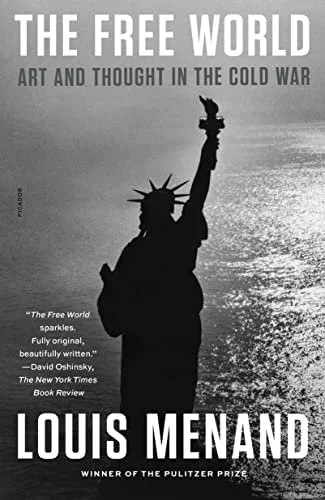October 2022 Newsletter
An Apostolate with Young Families
Some years ago Dusty Dequine, a supernumerary member of Opus Dei living in Denver, was given a suggestion, “Why not focus your apostolate on young families?” He liked the idea. “In connecting with other men,” he commented, “it can be hard to pull the father away from the rest of the family. But bringing families together is an easy ask.”
On a sunny Saturday in September Dusty and his wife Elizabeth hosted 20 young families. Most all of the children – and there were scores of them – were under the age of 10. Dusty and Elizabeth drew from a wide circle for their little festival. Some were good friends. Others were acquaintances, people “we kinda’ knew from the school that our kids attend.” And others were friends of friends.
There was plenty for the kids to do. The Dequines rented a large bouncy house with a water slide. The family has a ground-level trampoline and a pond with fish and frogs. A stretch of grass became an impromptu soccer field. And burgers and brats were grilling all afternoon long.


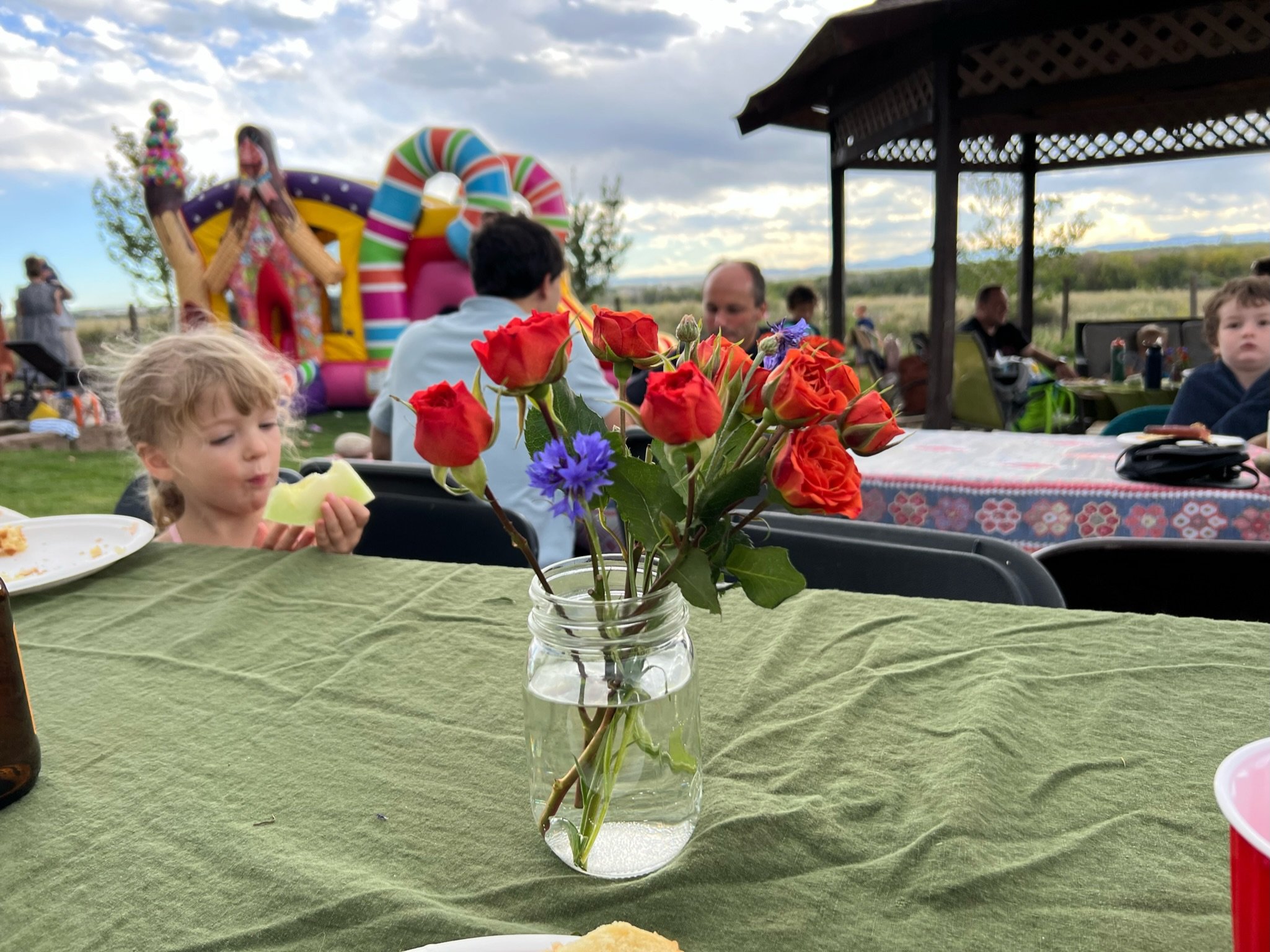
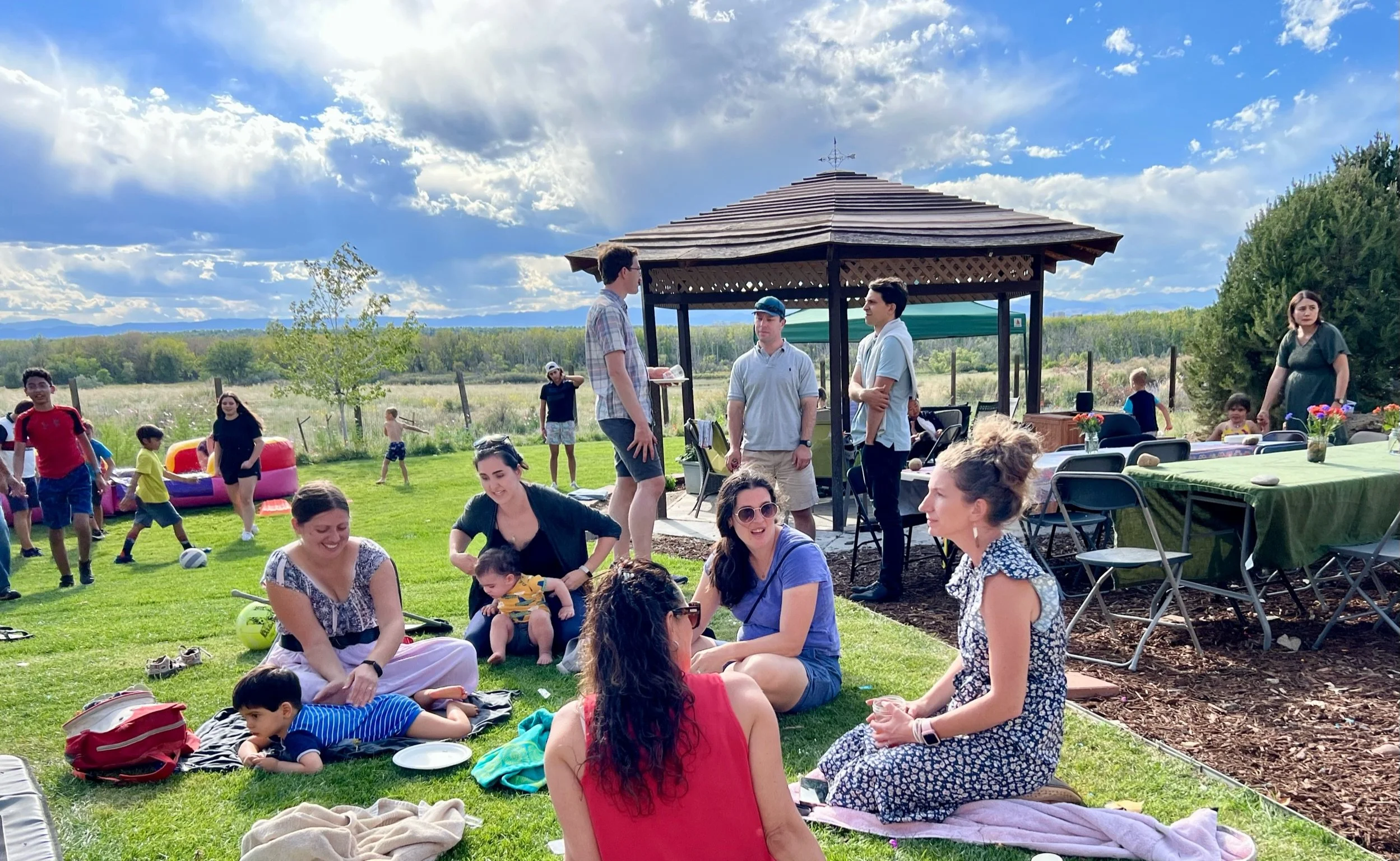


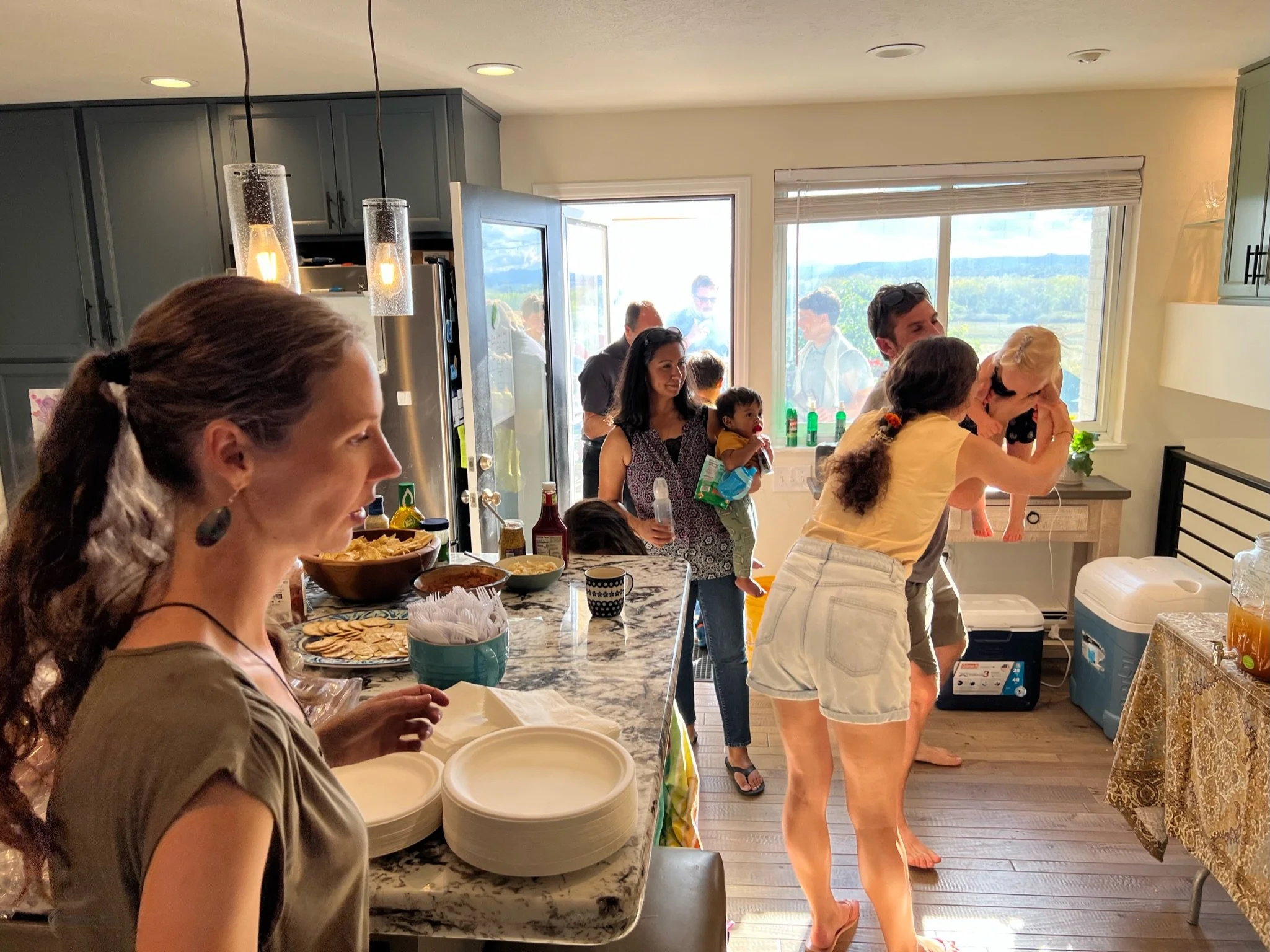
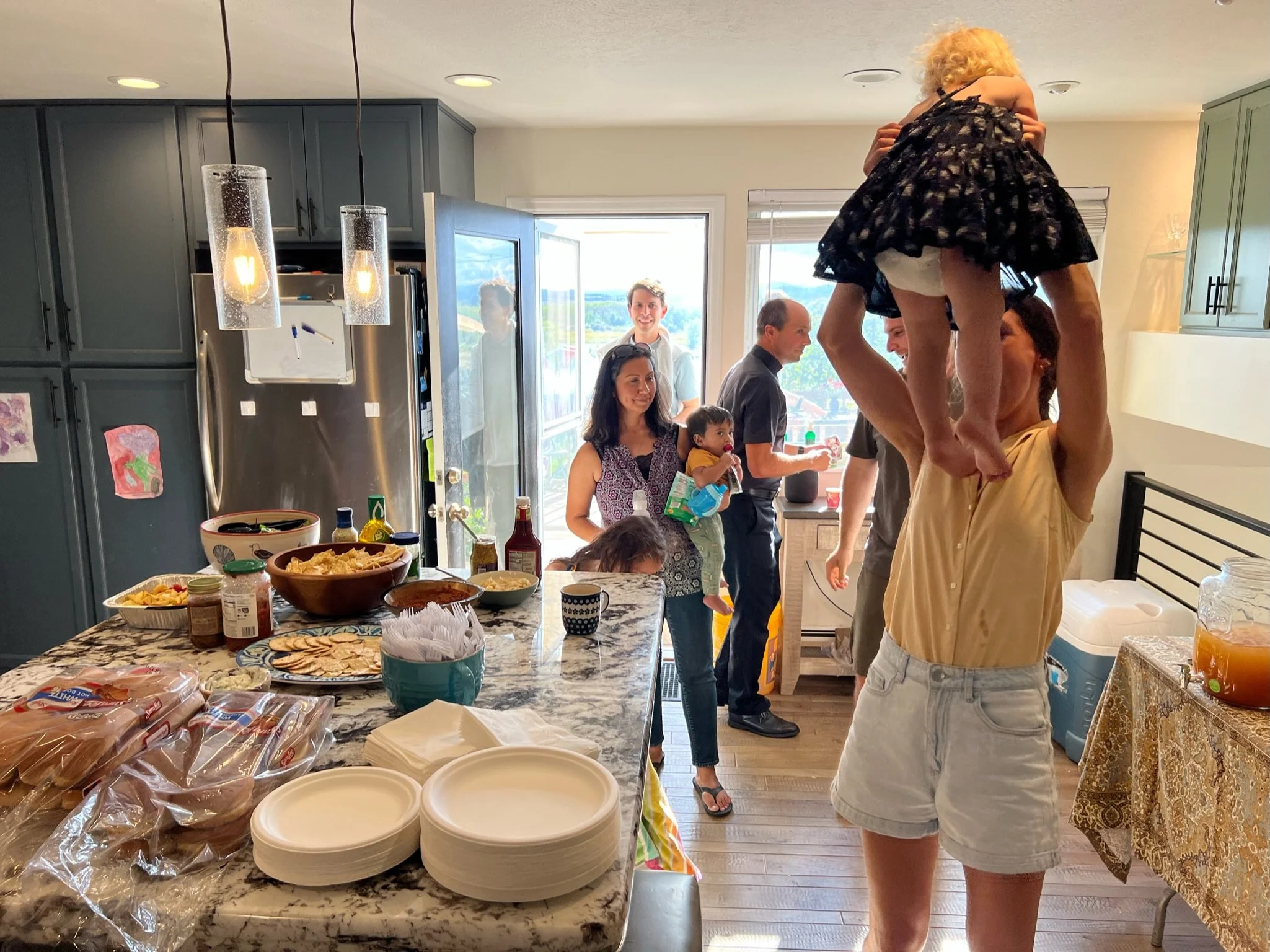
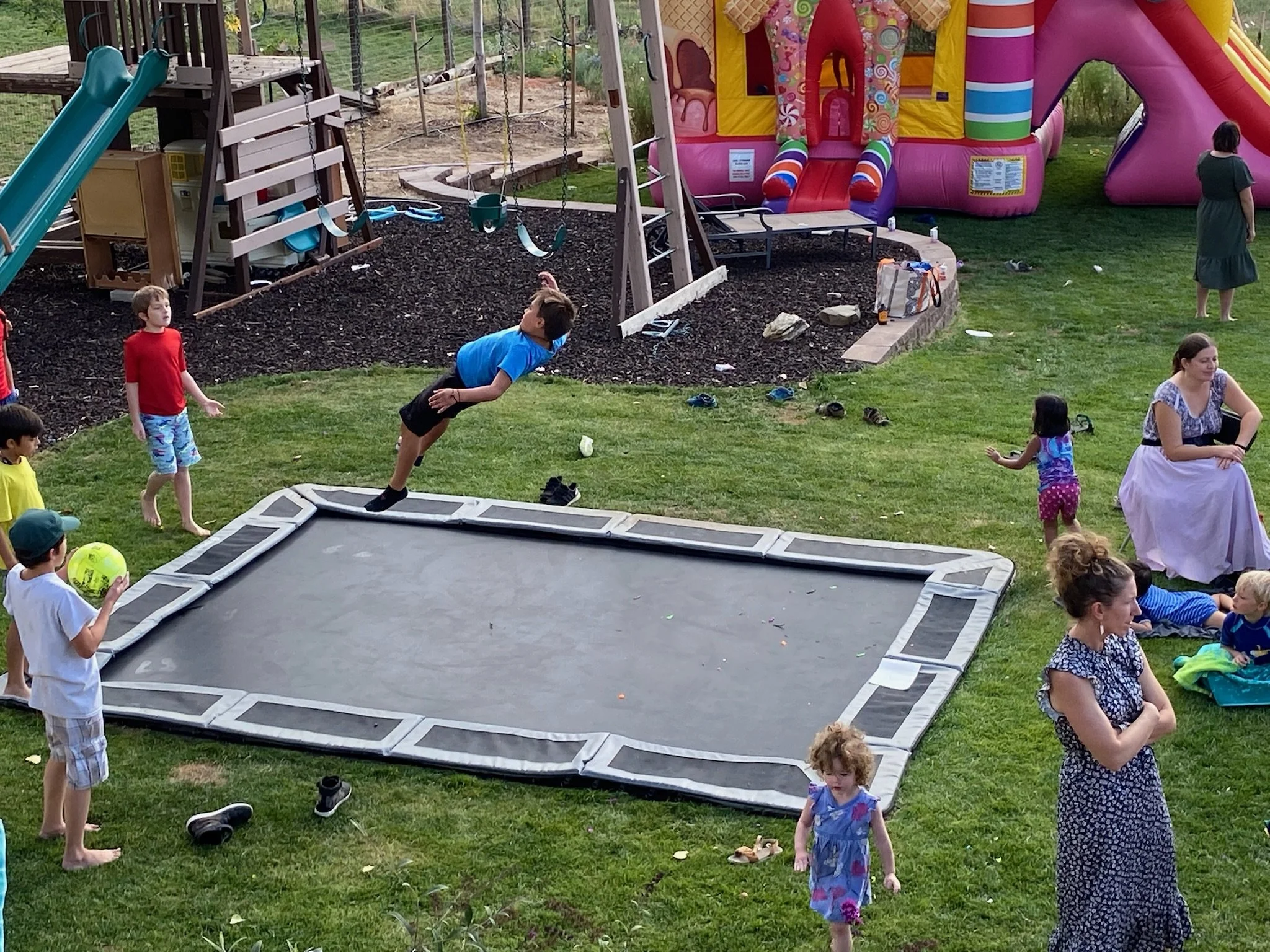
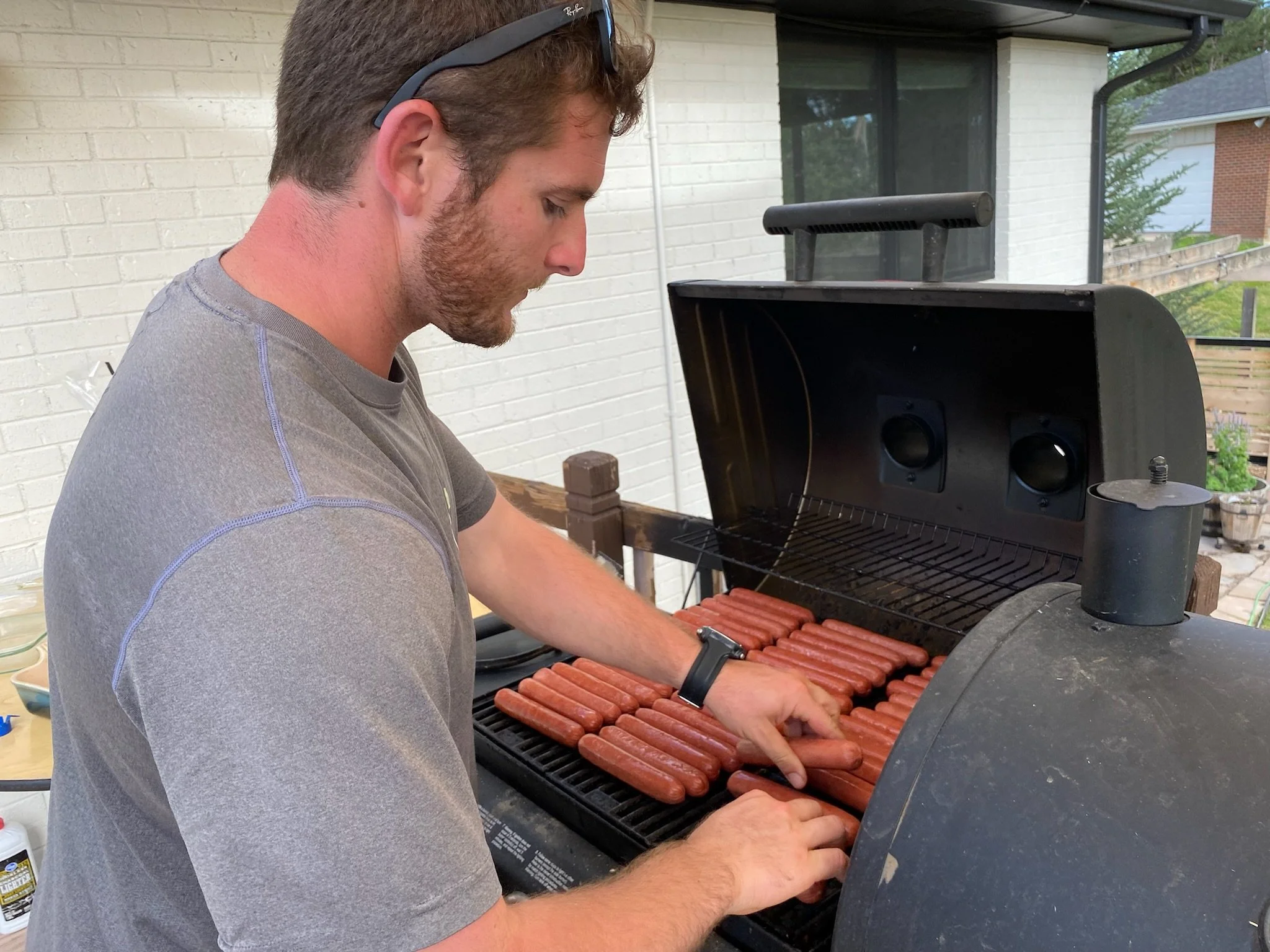
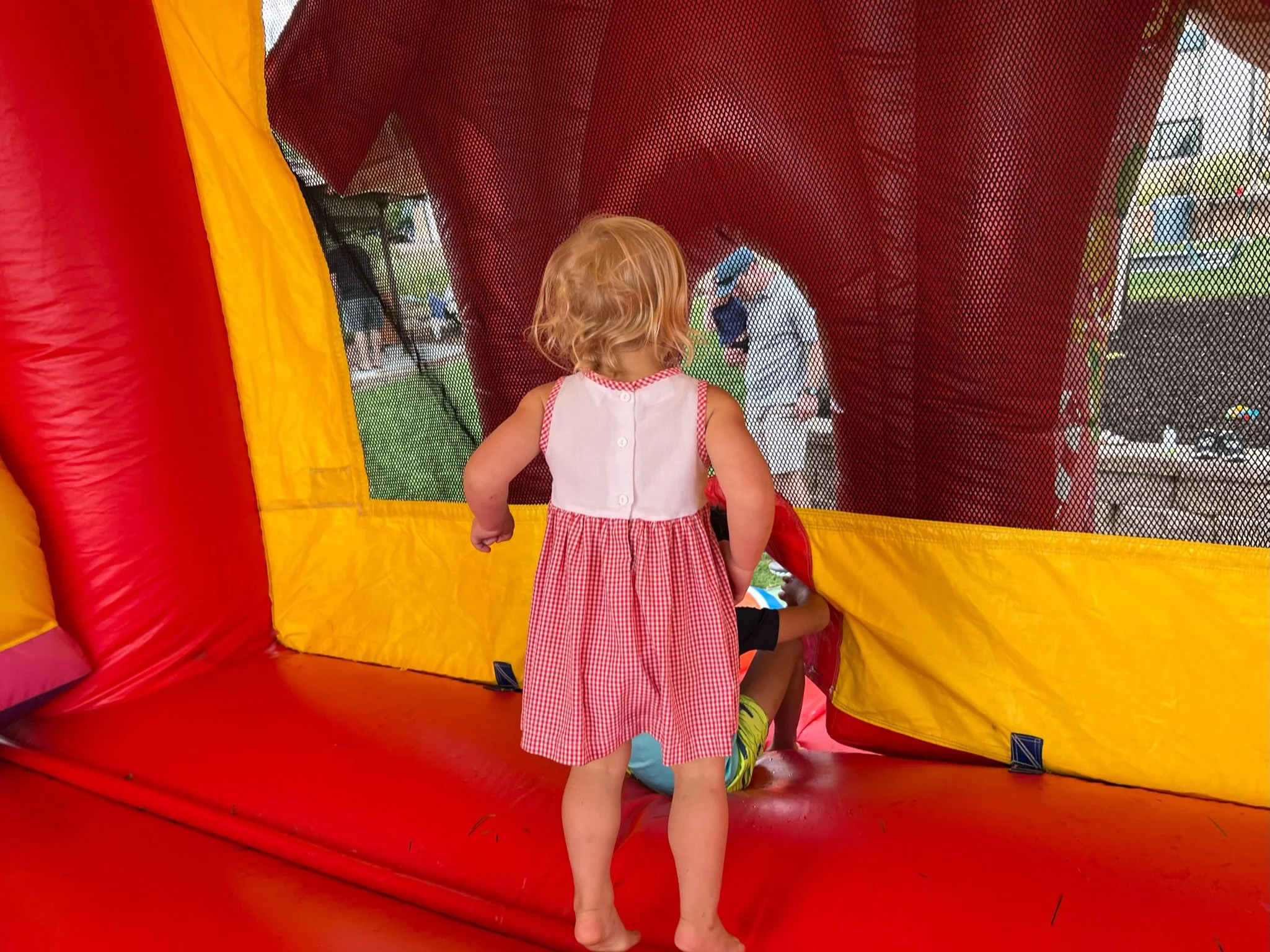
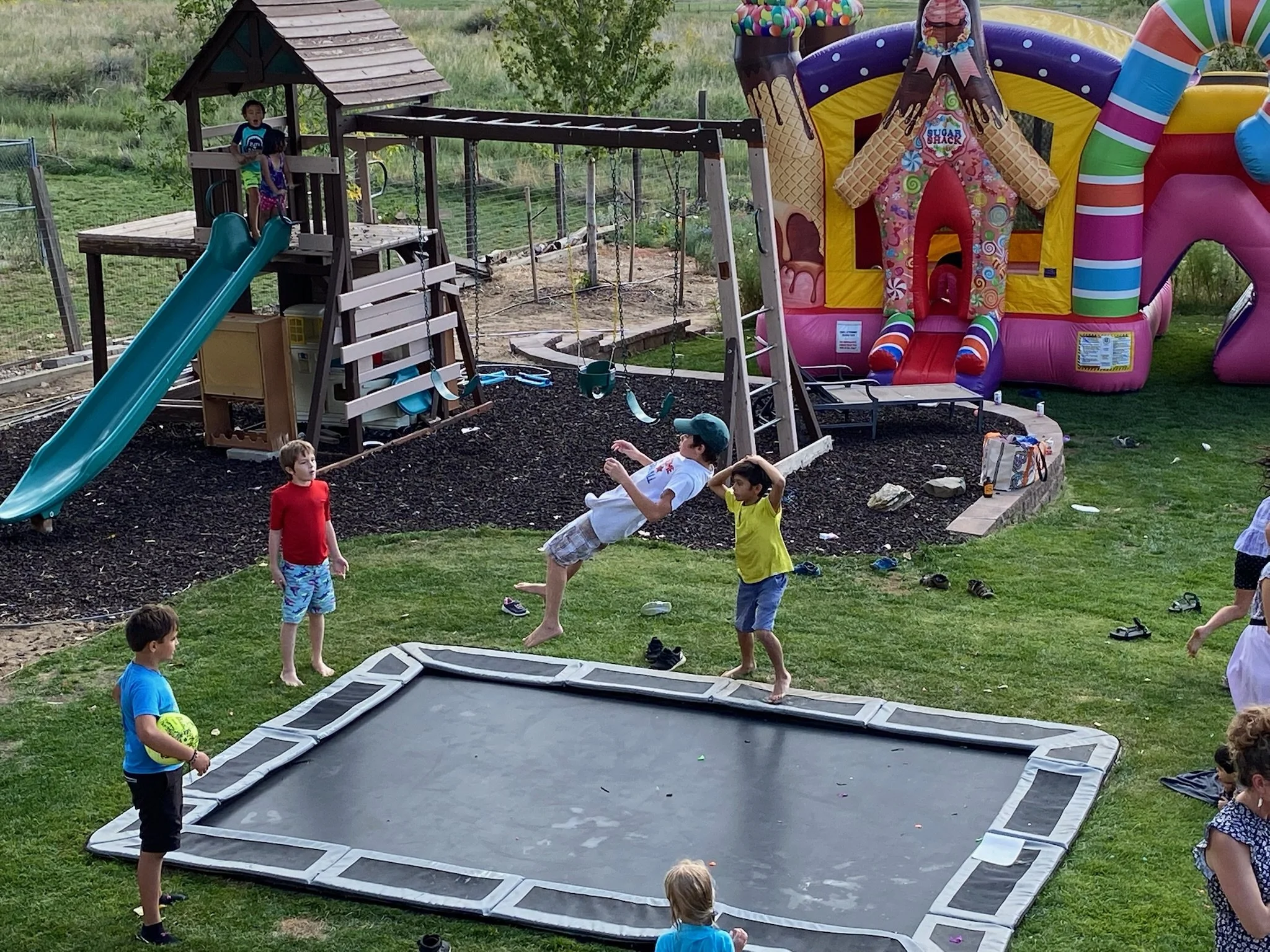
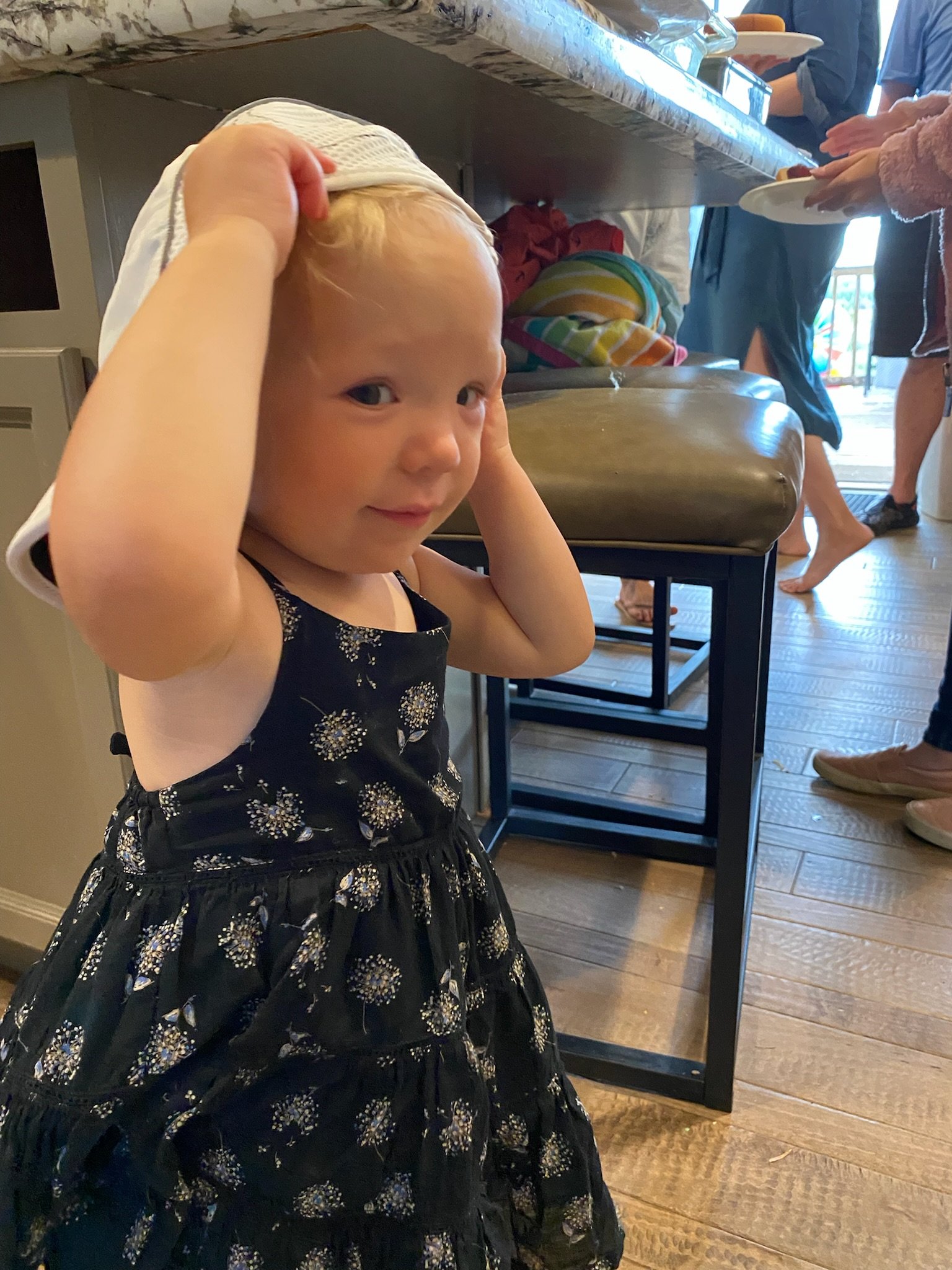
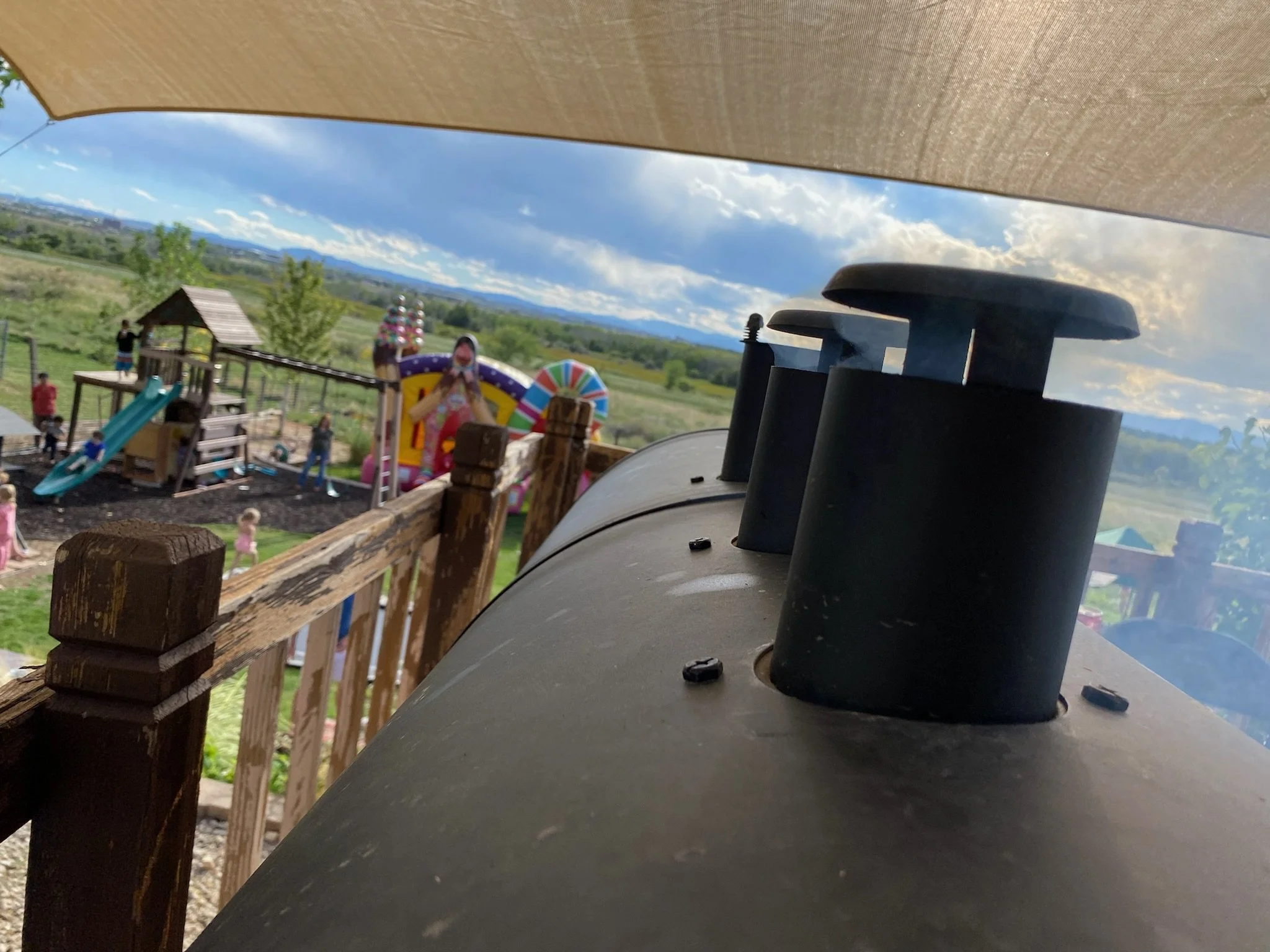

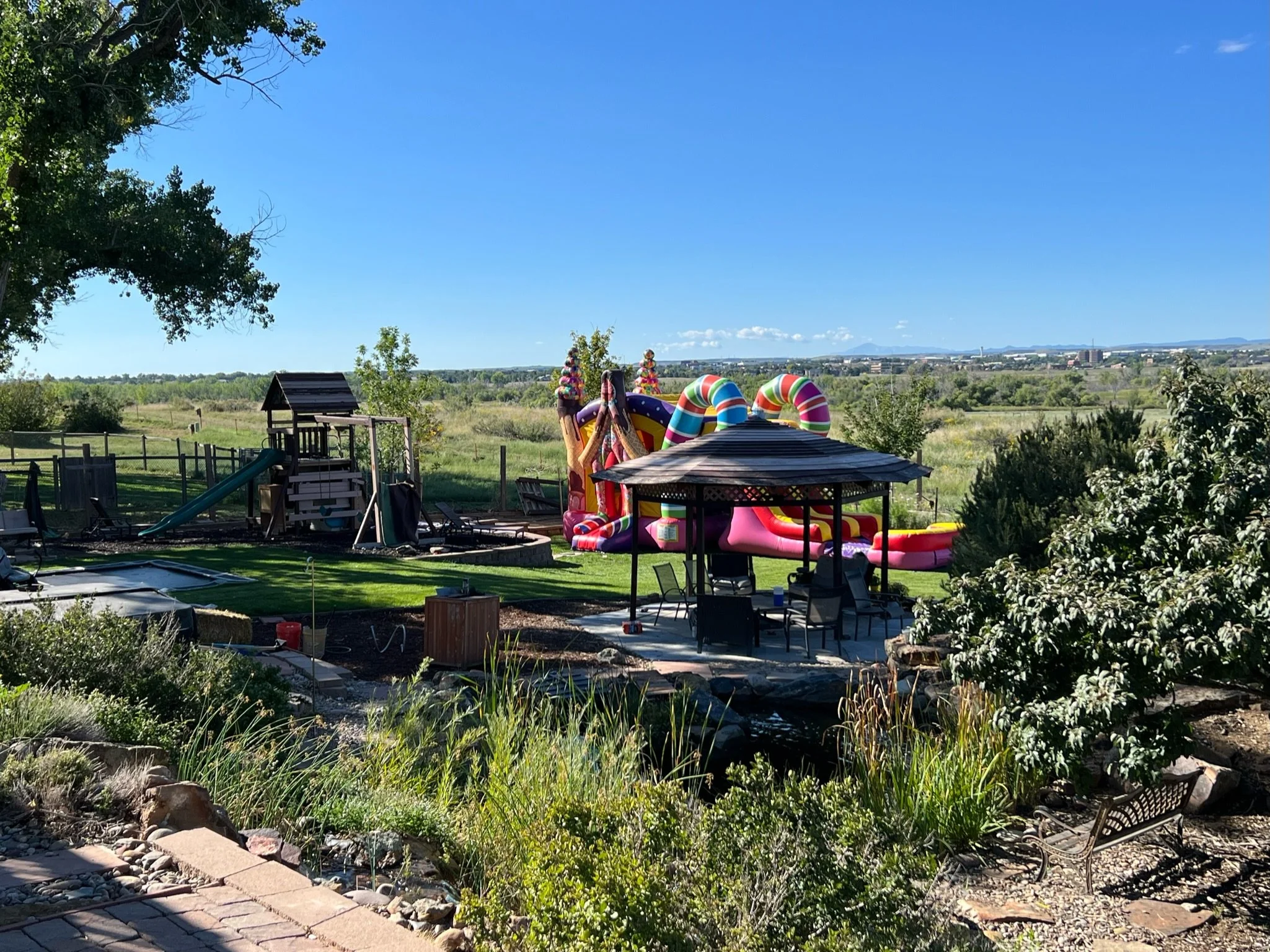
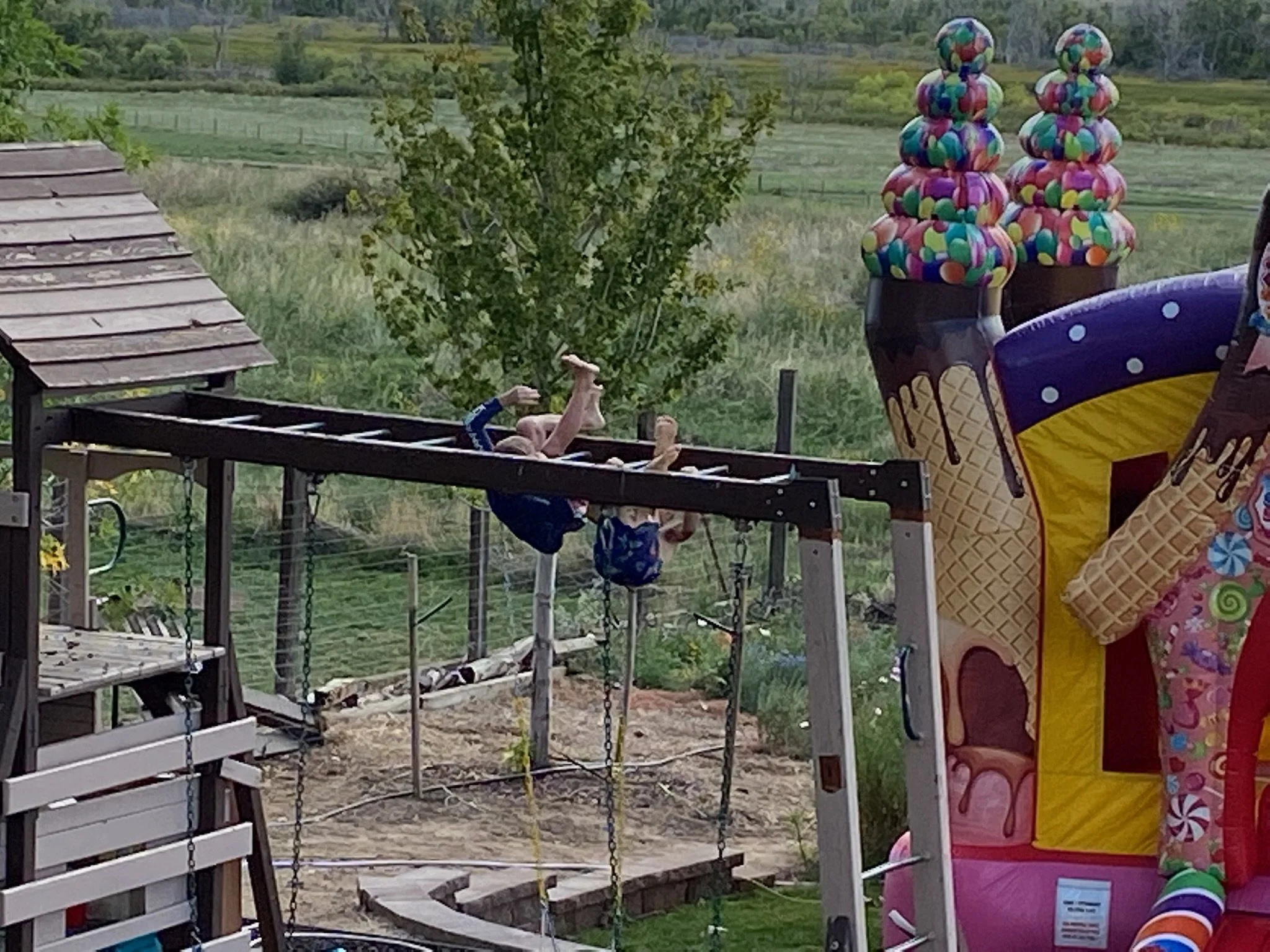
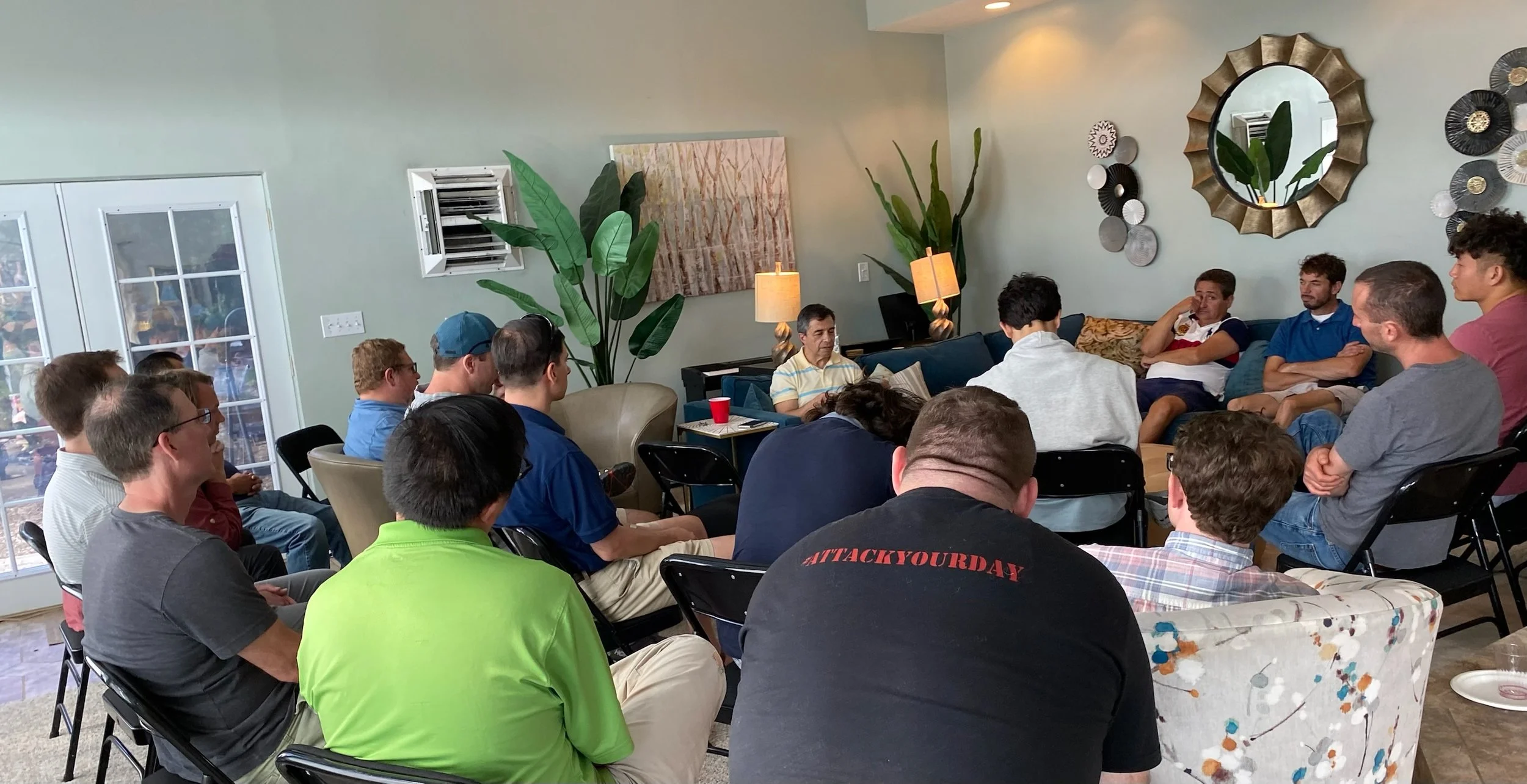
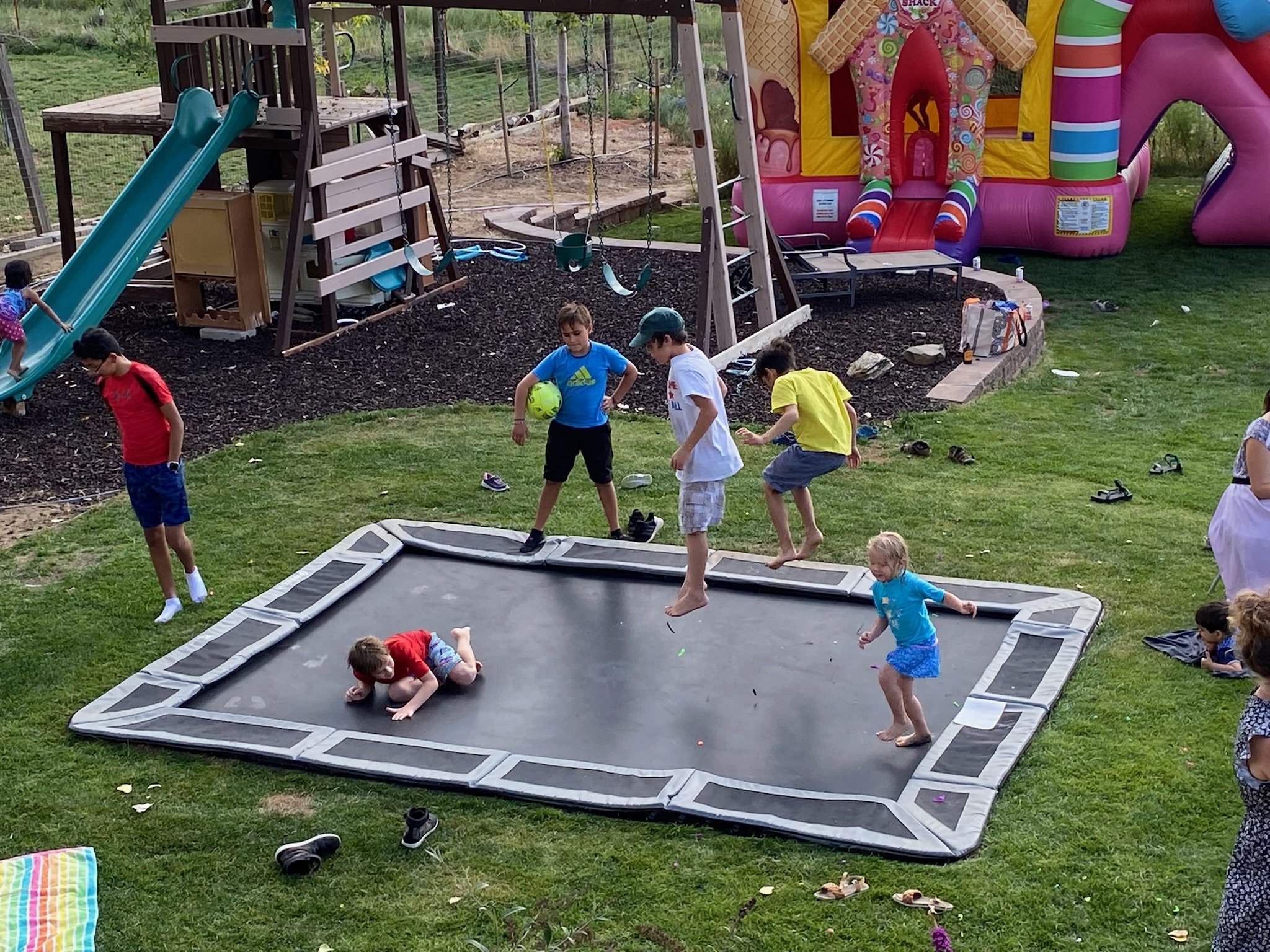
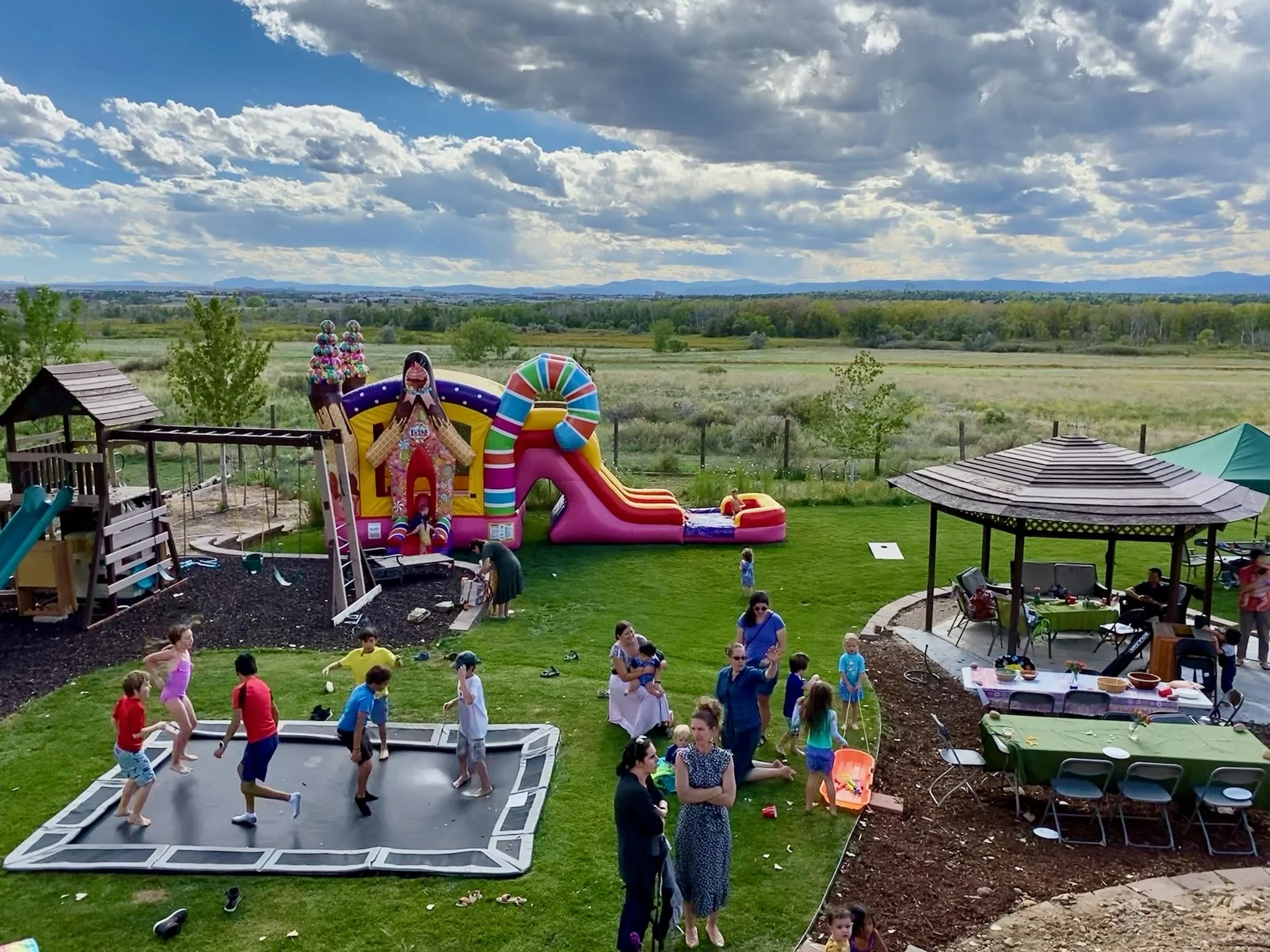
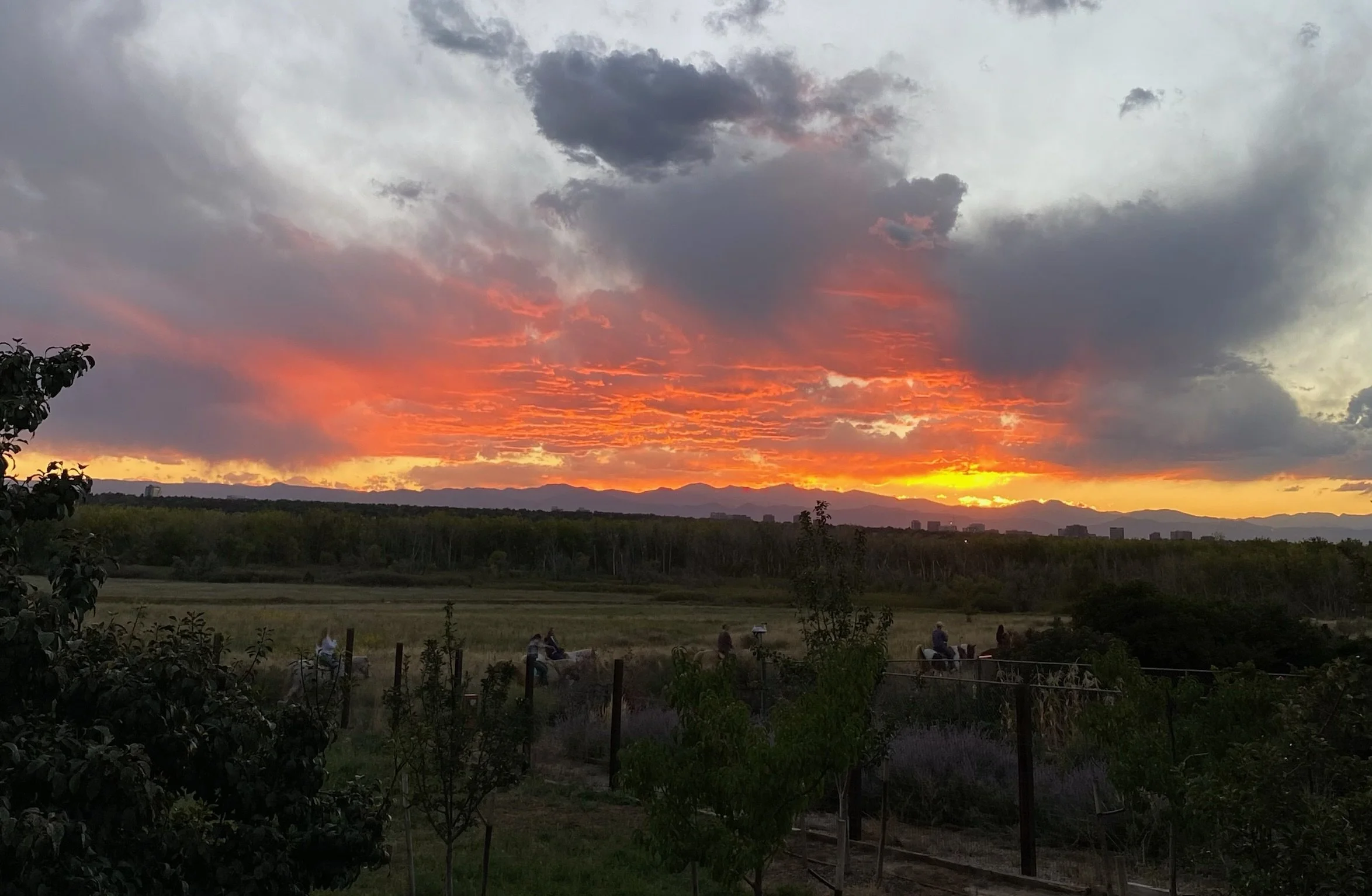
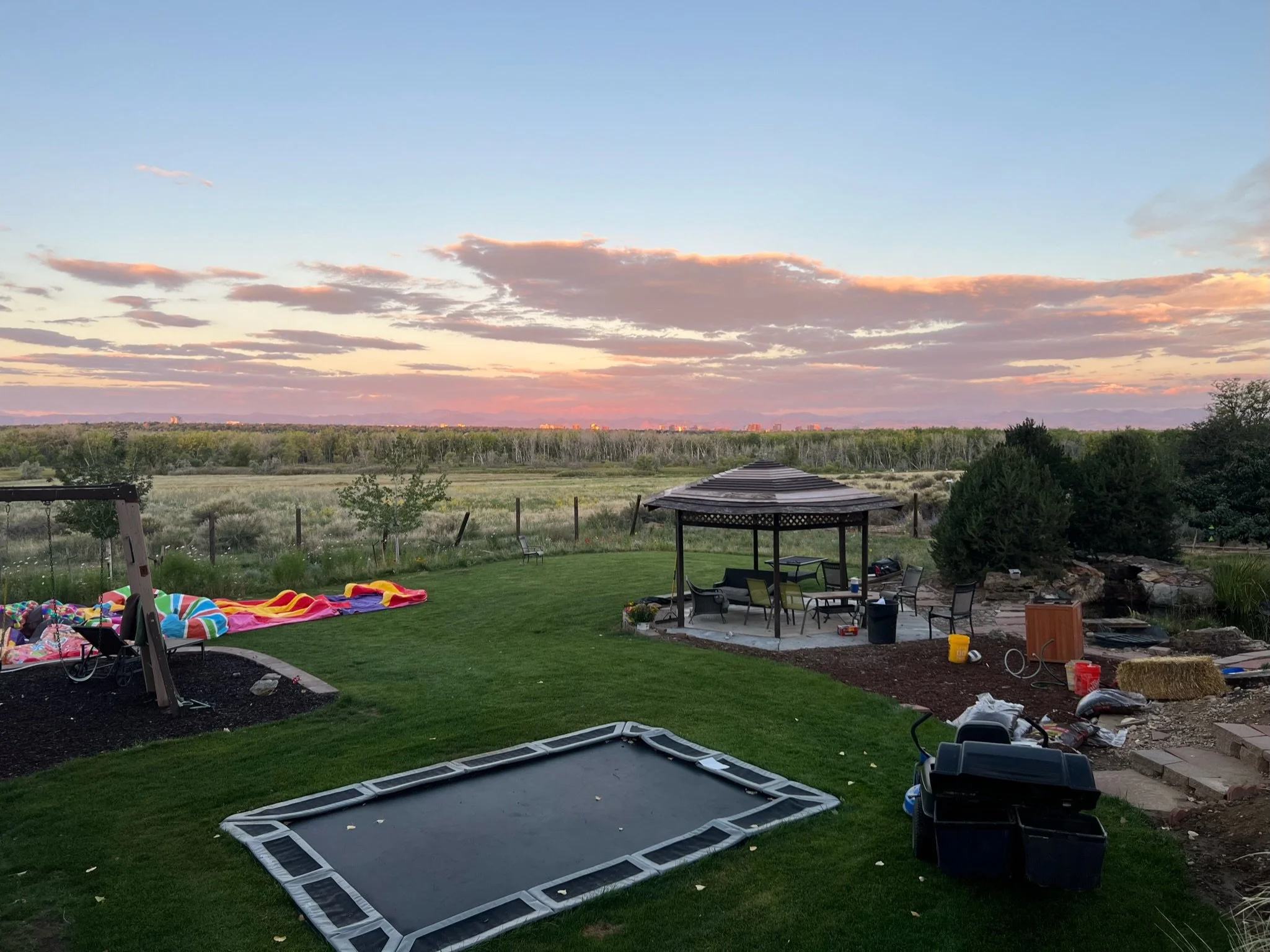
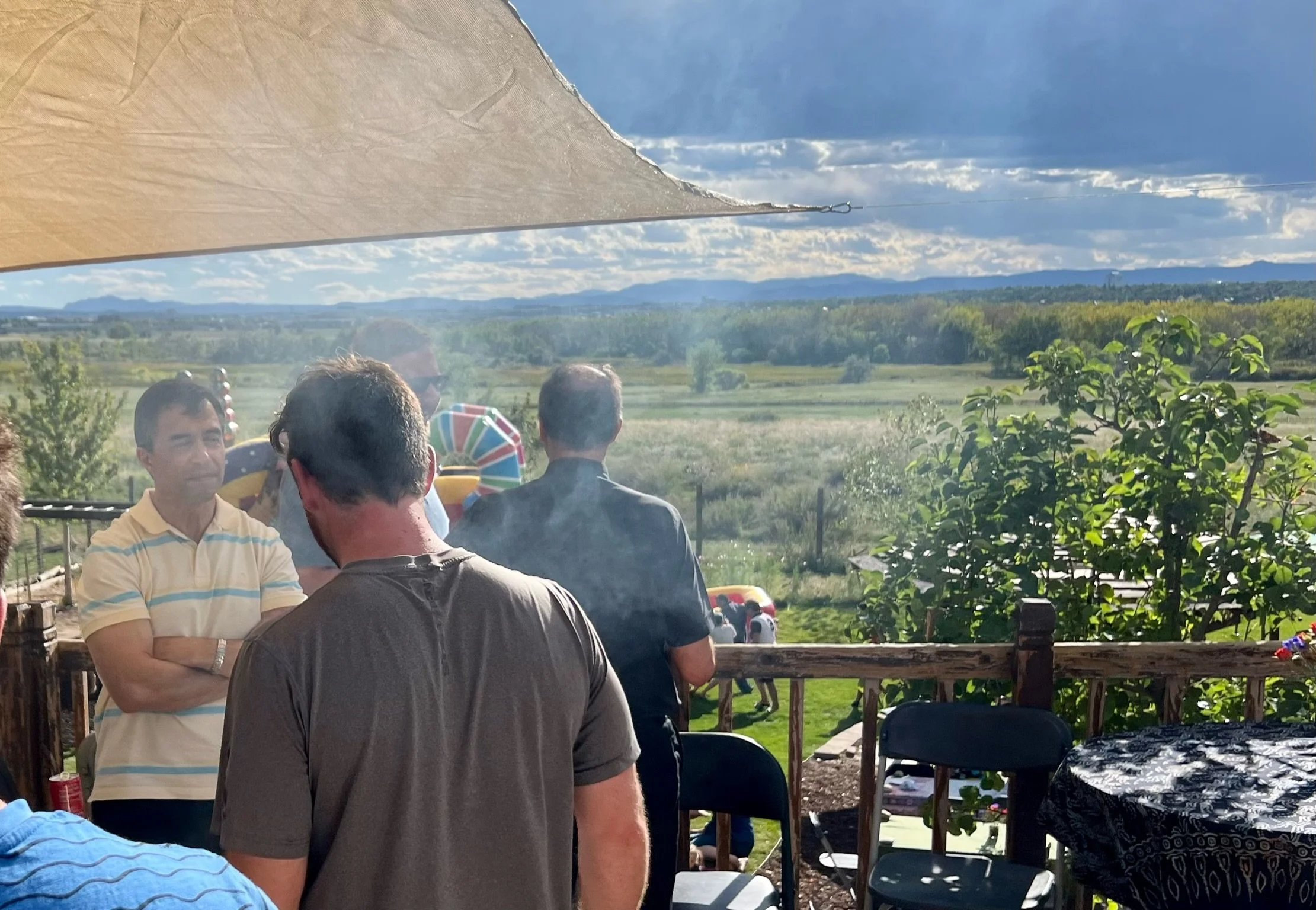
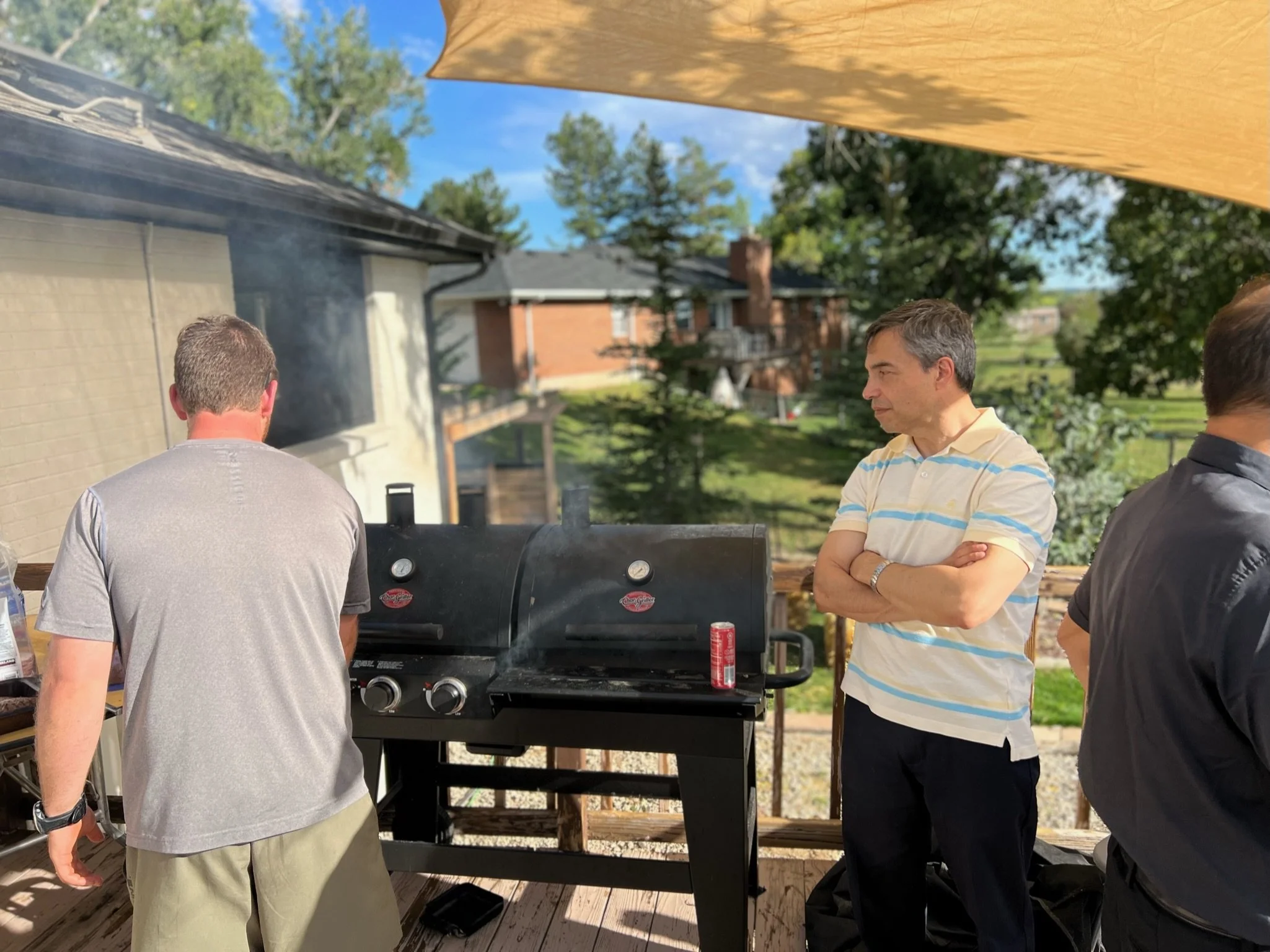
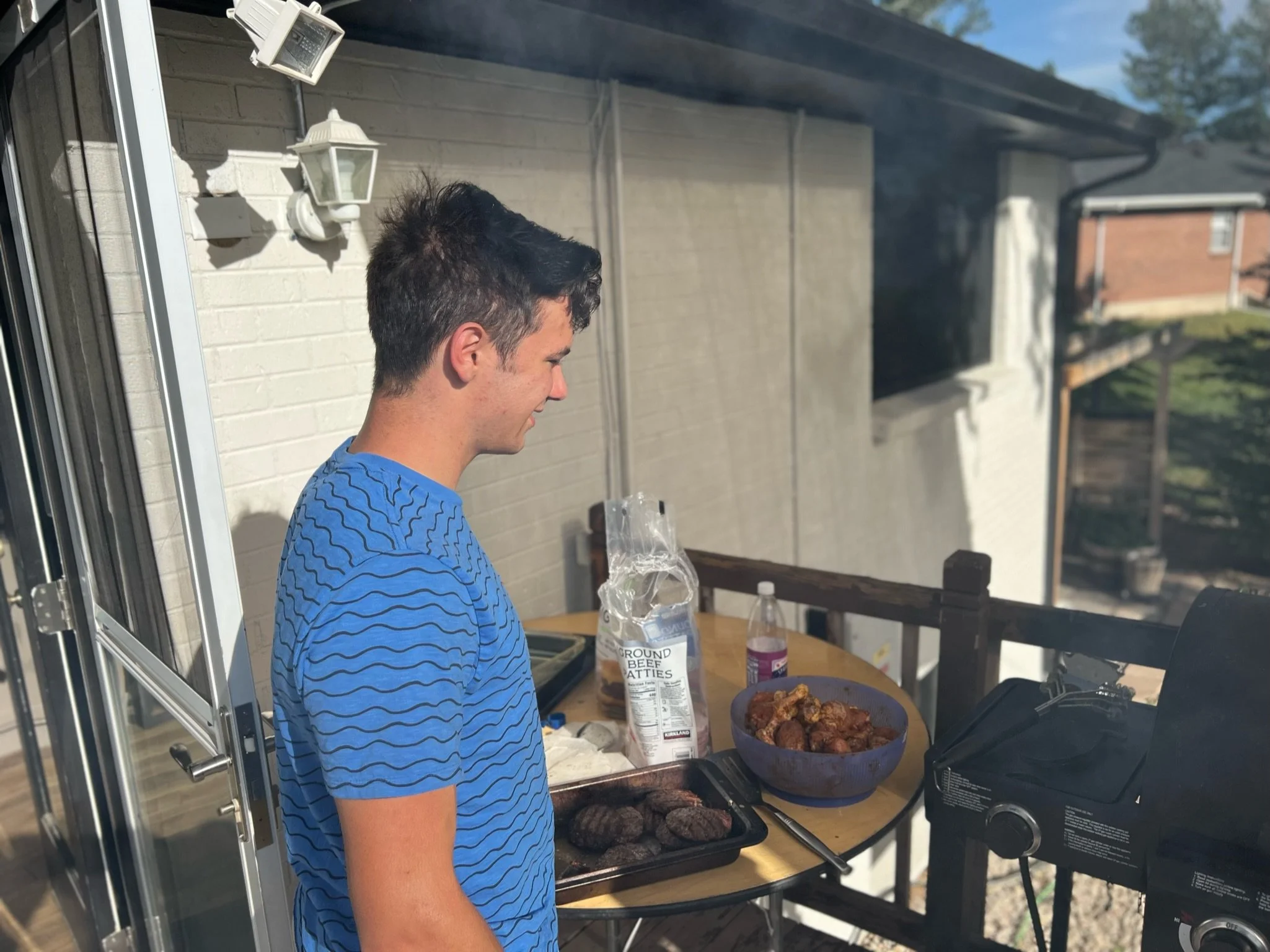
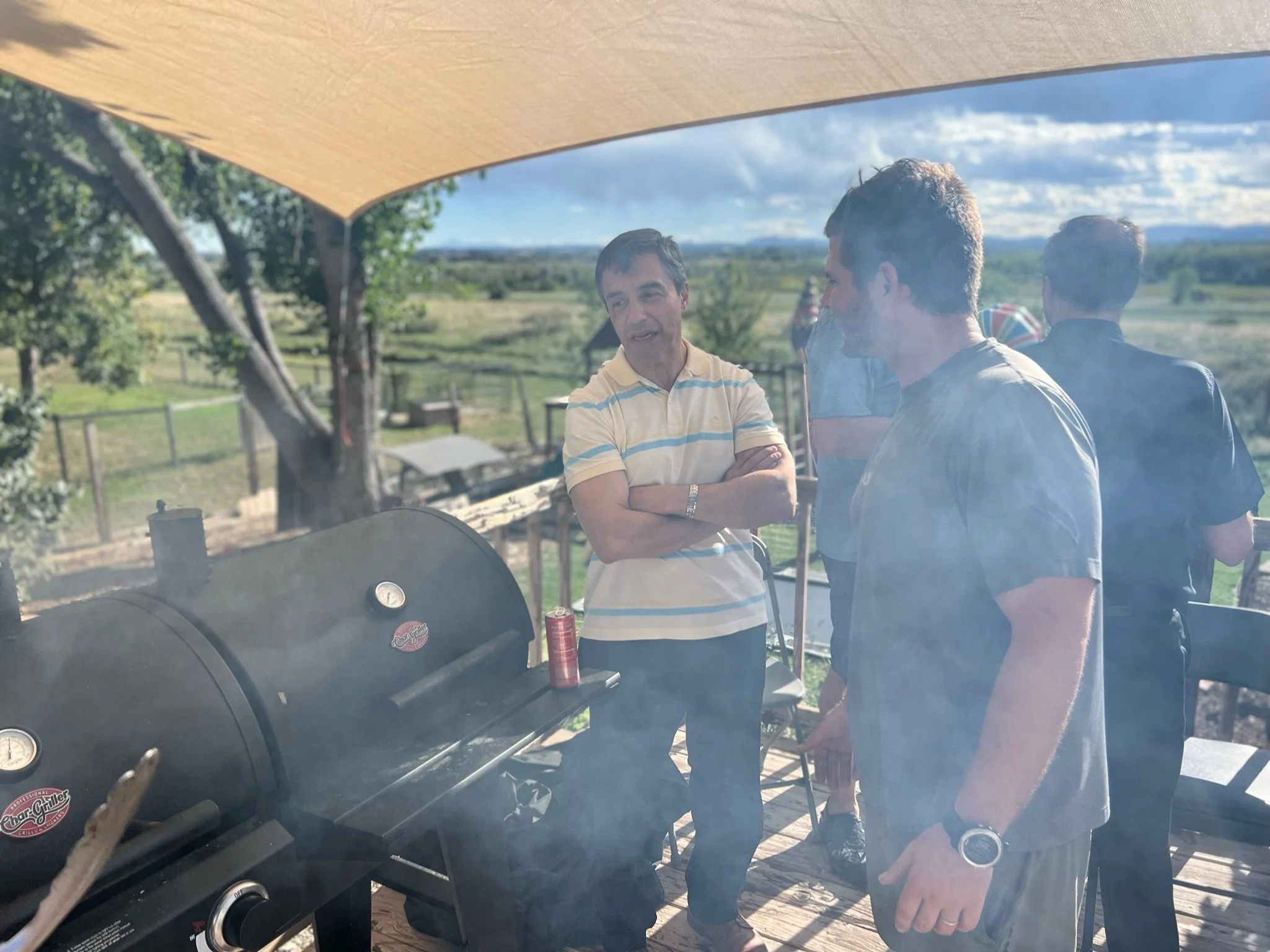
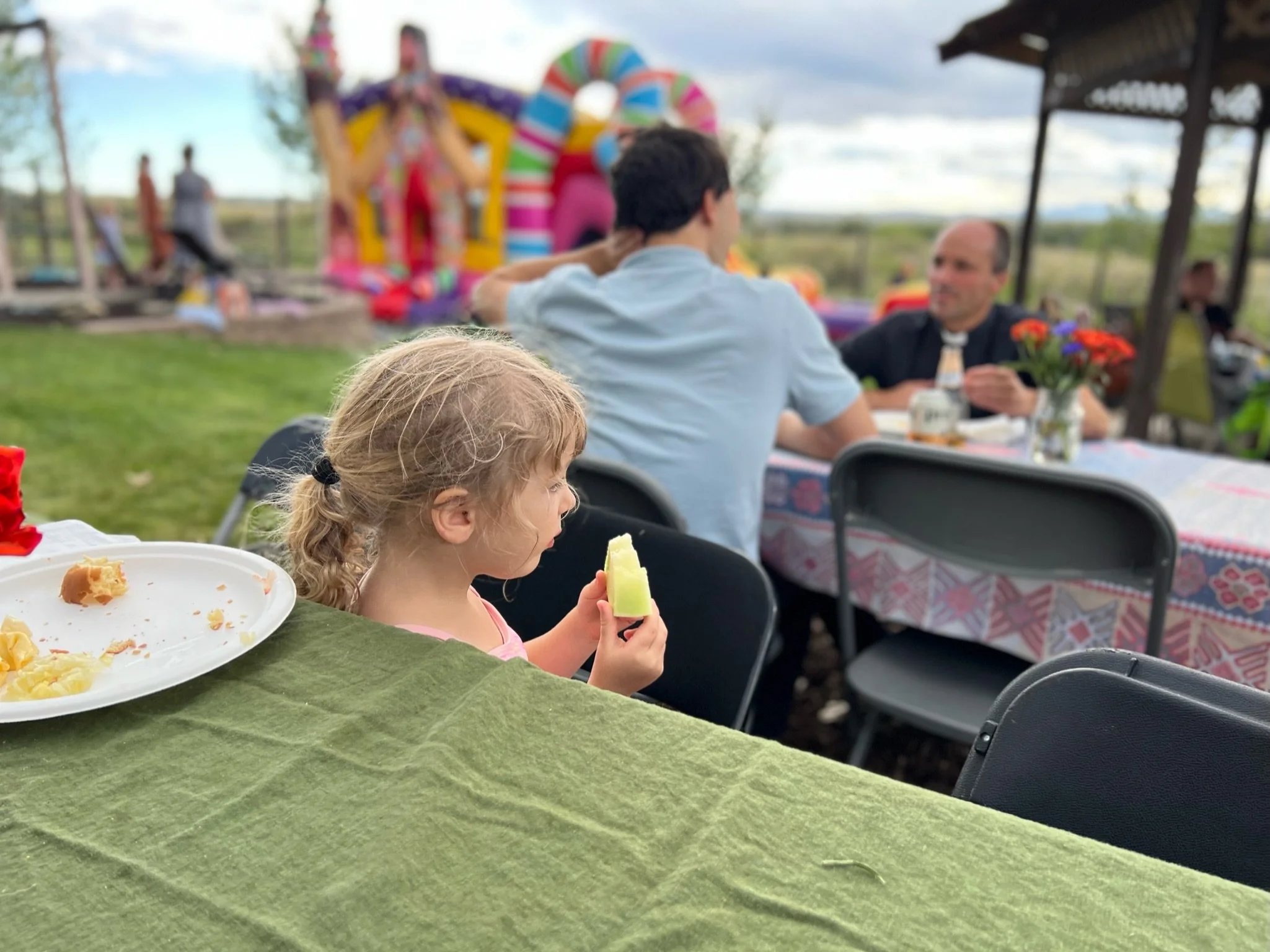
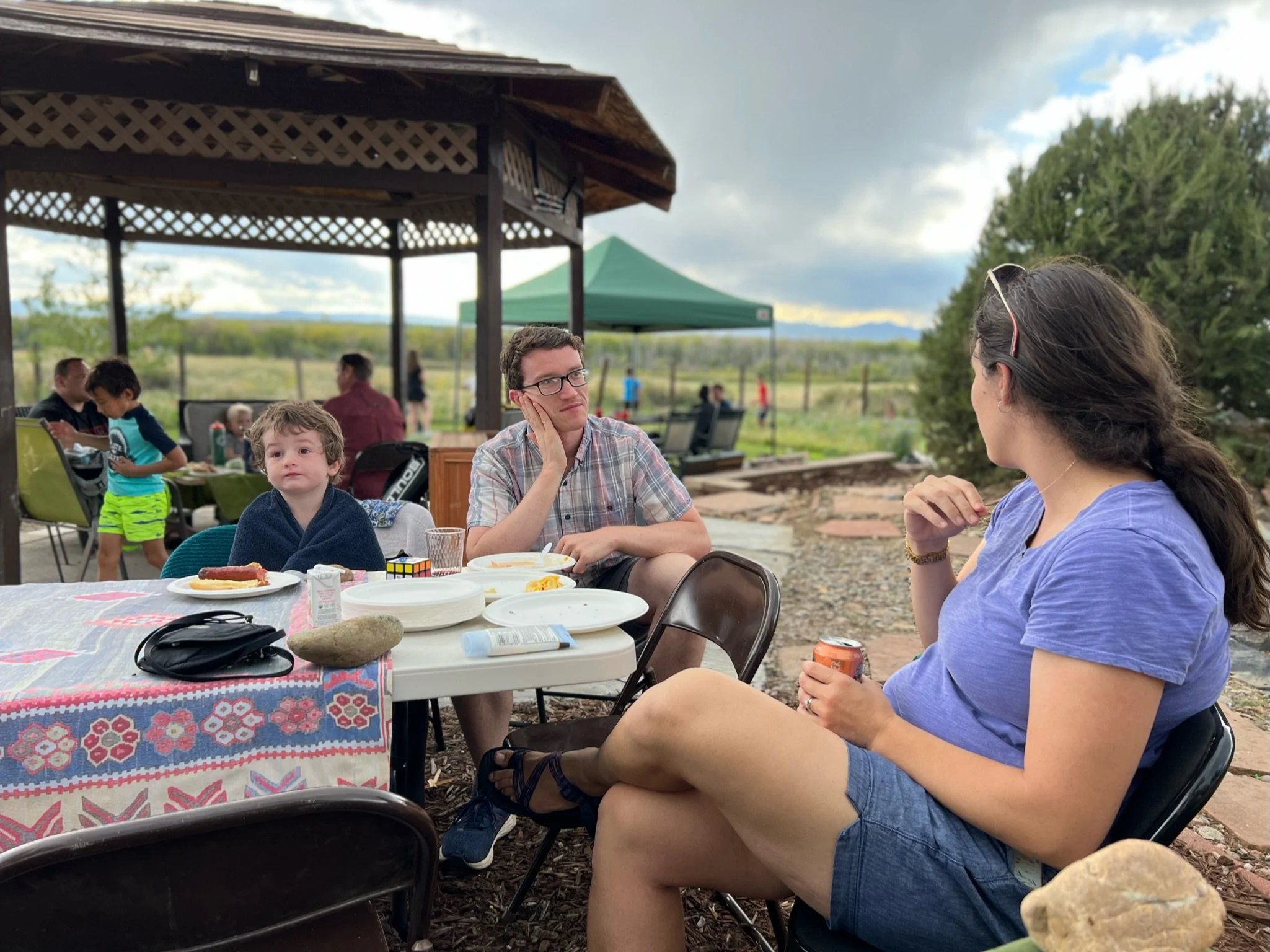
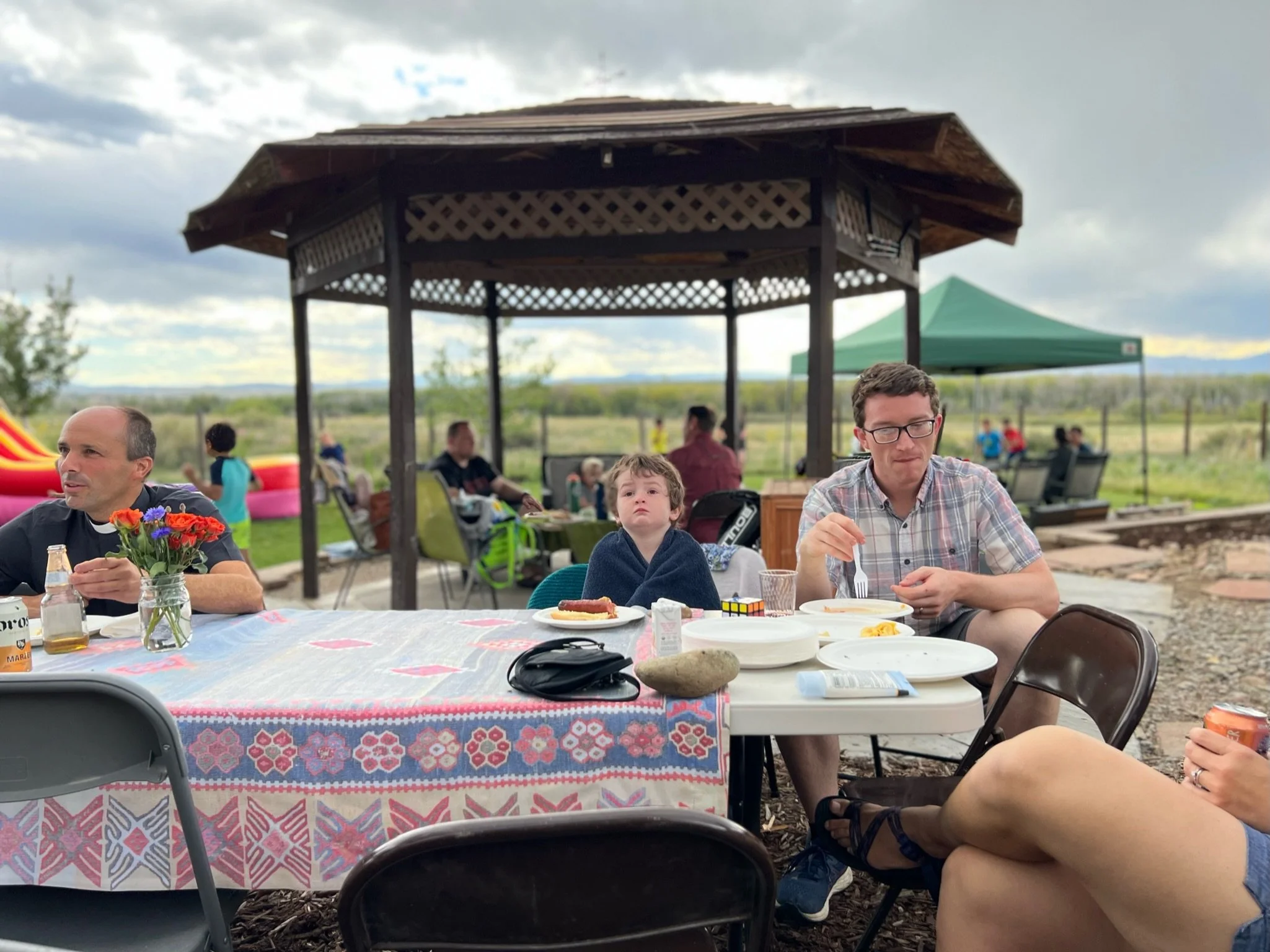
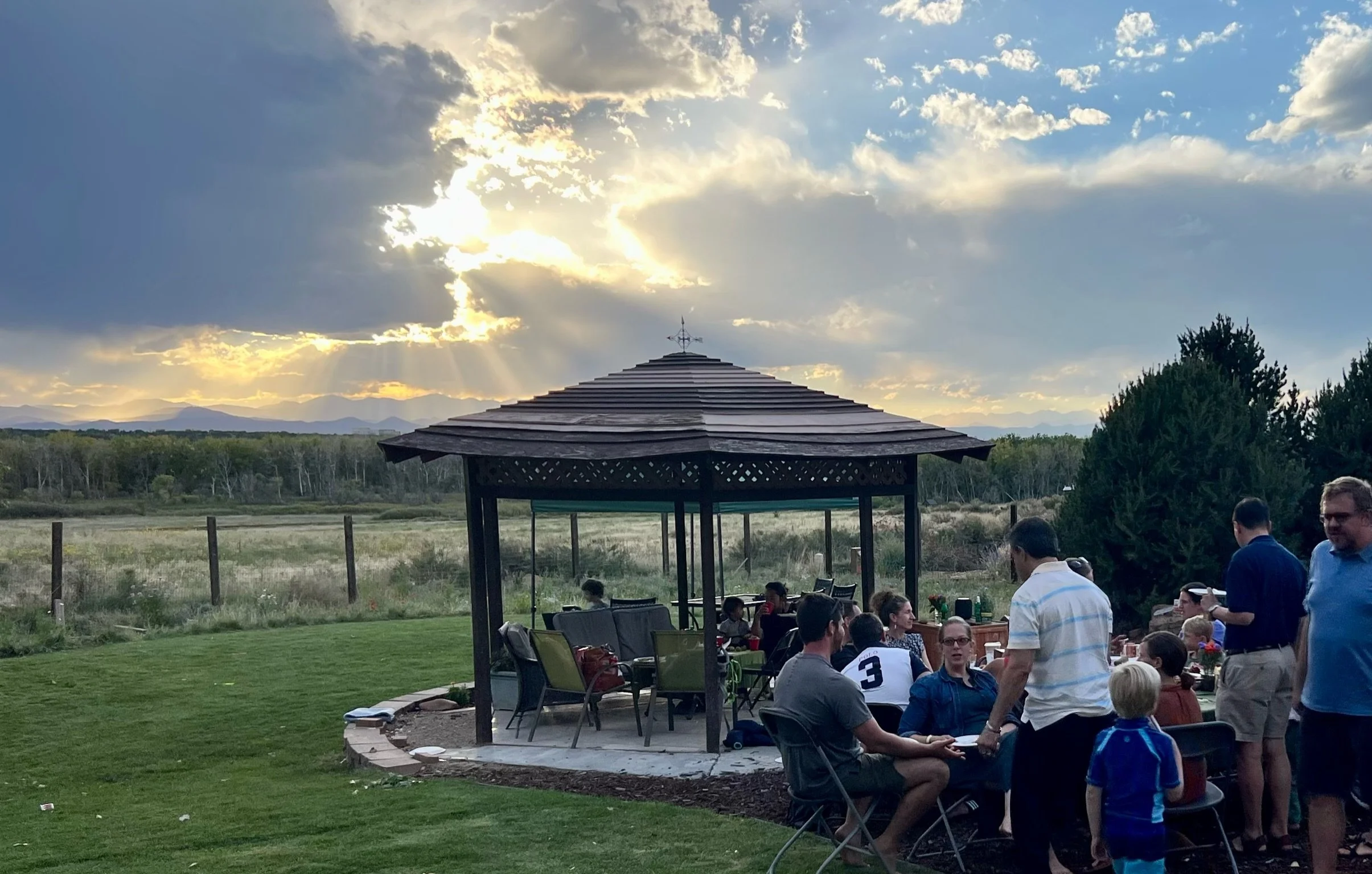
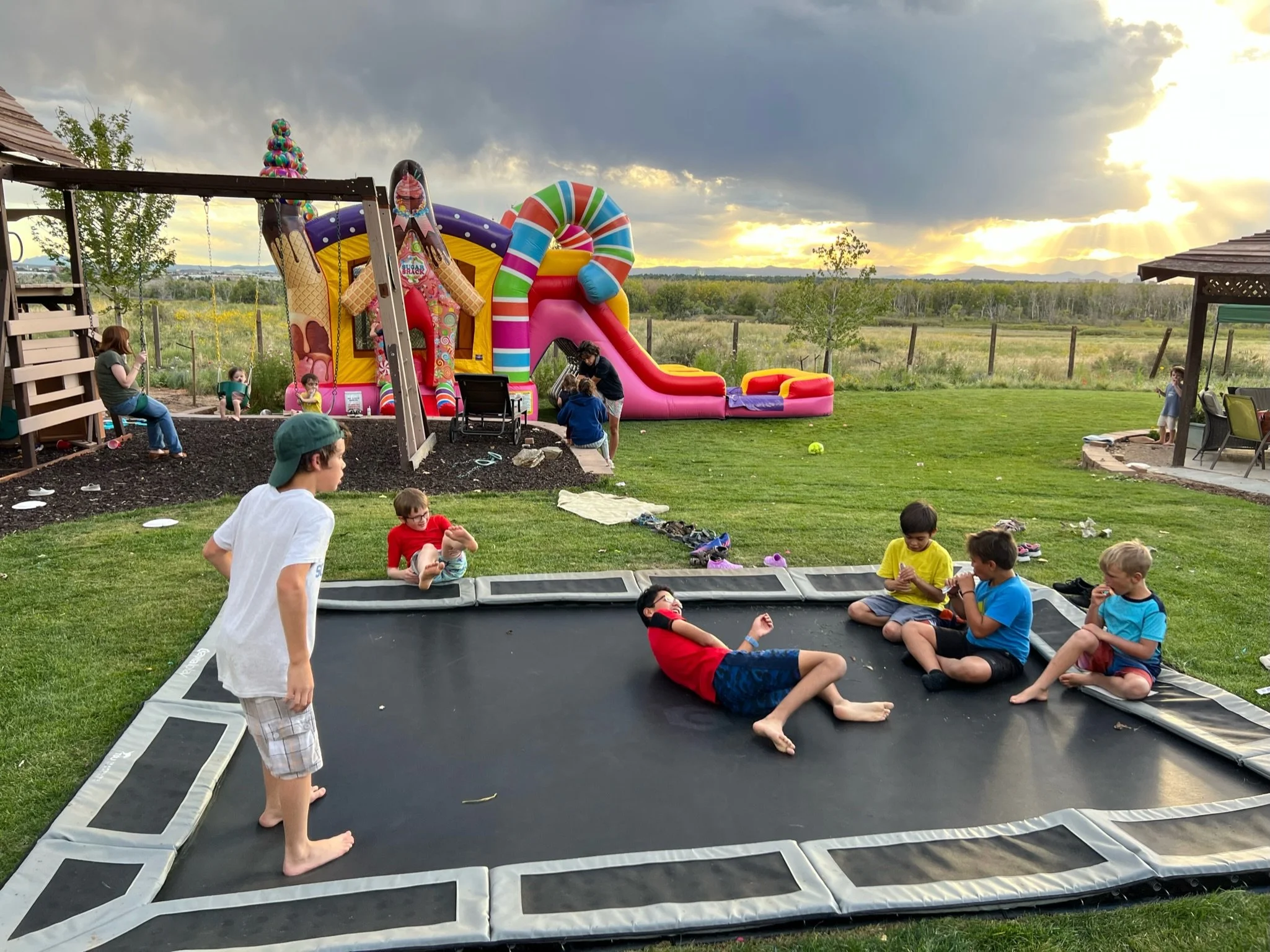
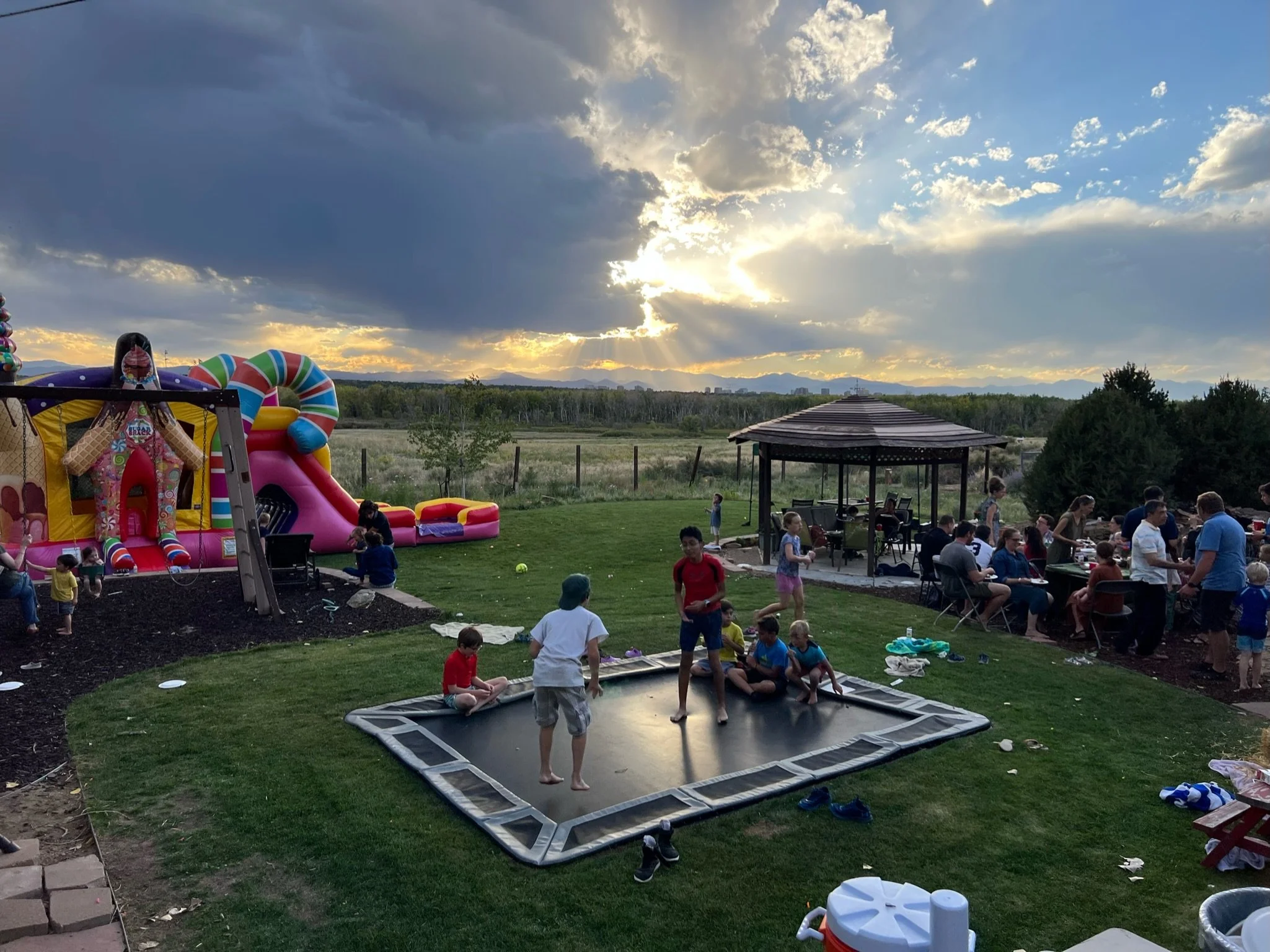
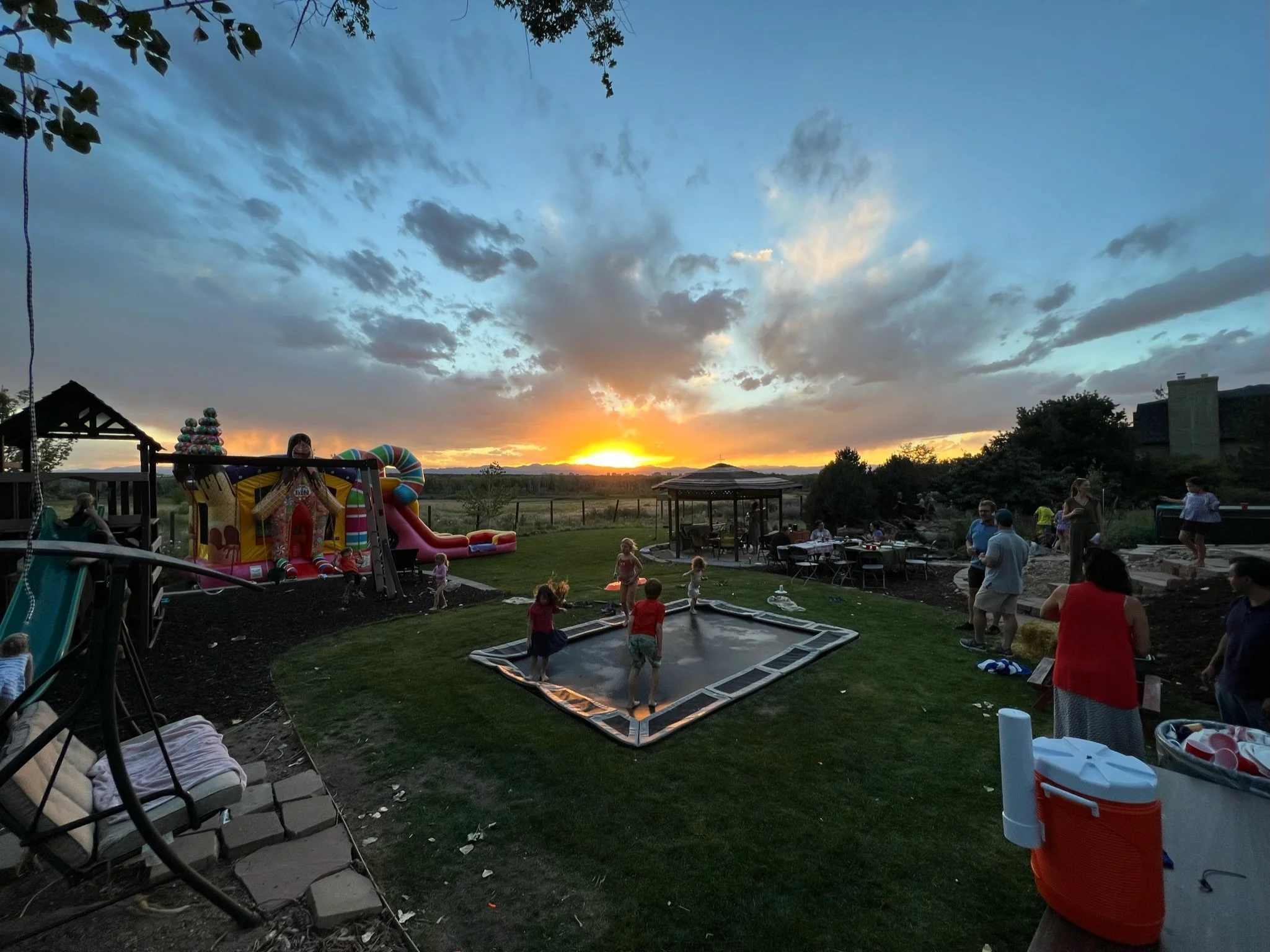
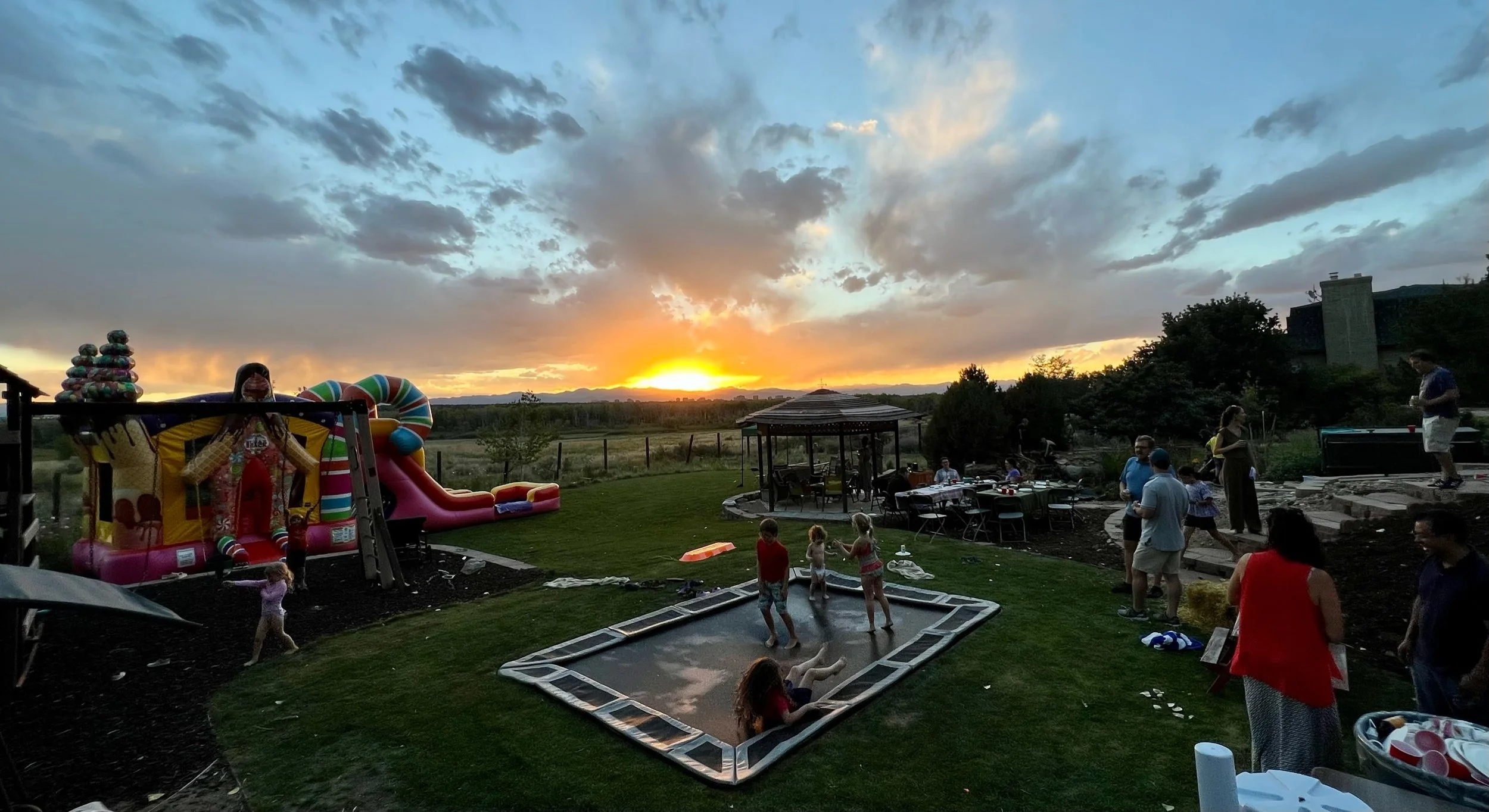
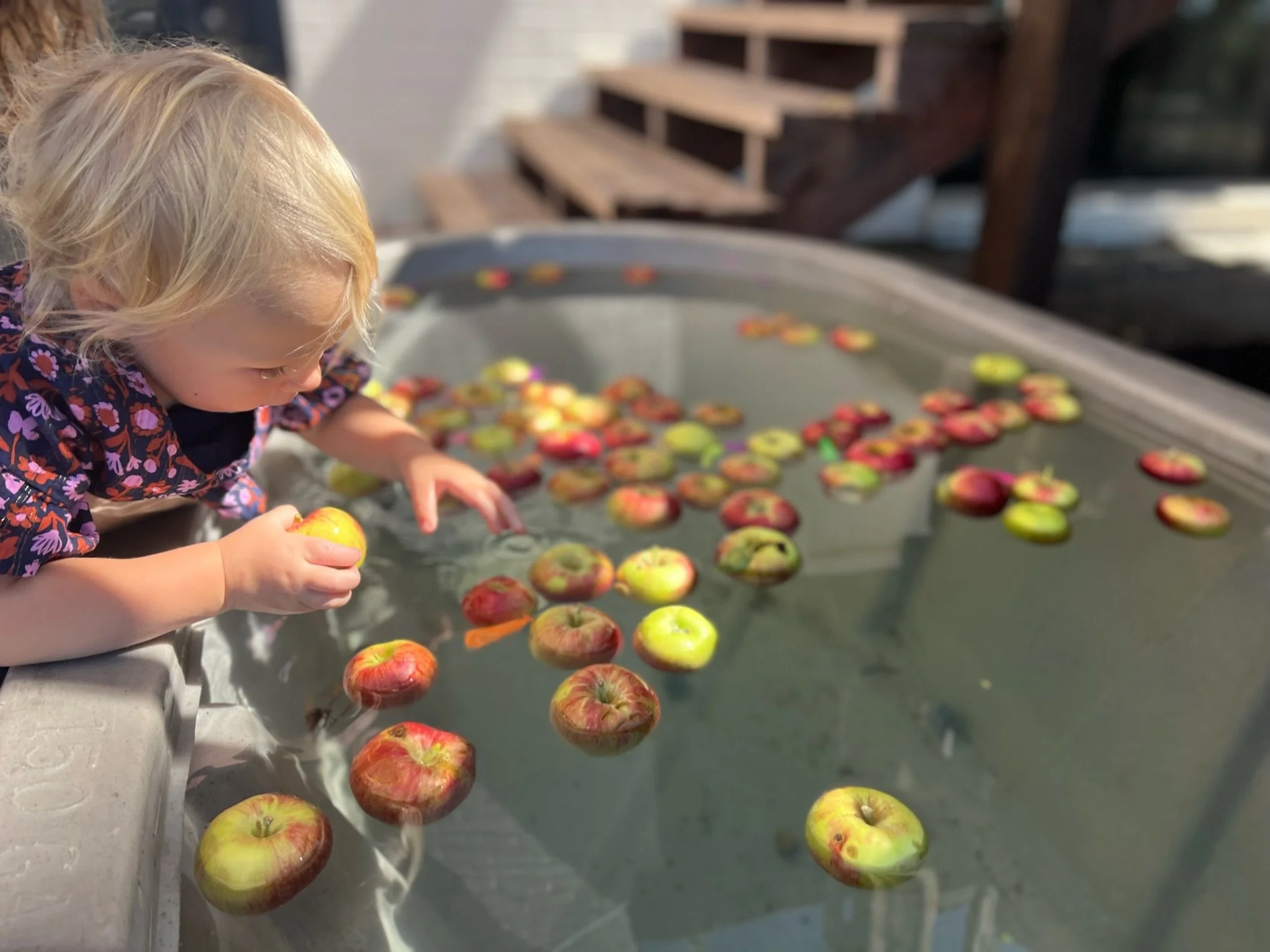
Beyond fun for kids and connections for adults, Dusty wanted to introduce friends to Opus Dei. He invited Jim Palos from Midtown to give a talk on sanctifying family life according to a principle of St. Josemaria: the importance of little things.
Among the guests were Charlie Goetz, his wife Tori, and their three children. The Goetzes are new to Colorado. Charlie is a former Air Force pilot who now teaches at the Air Force Academy in Colorado Springs. “The gathering was perfect, especially with us being new to the area,” said Charlie. “It was a great venue to connect with other families.”
A similar gathering was held the night before at the home of Greg and Tomoko Creed at their home in Ft. Greeley, 20 miles to the north of Denver. Greg is also a supernumerary. His kids are older and now have families of their own. So Greg and Tomoko put together a cookout for the families of their kids and their peers. Again, the husbands had a discussion about serving their spouses and children.
Dusty was very pleased with his gathering. “It was gratifying to see everyone together… so much joy, so much energy.” He also spoke about a new circle he is starting for dads with young children. “All the guys in the circle were present that Saturday afternoon. It was great all the way around.”
Transgender Workshop at Midtown
Midtown Cultural Center hosted a workshop on transgenderism. “Our aim was to foster understanding,” said Jim Palos, one of its organizers. “St. Josemaria had framed things well when he encouraged Christians to hold firmly to truth, and to show great tolerance and kindness to those with different beliefs.”
Fr. John Waiss, pastor of St.Mary of the Angels parish, opened the workshop by presenting a Christian teaching on gender. He cited St. John Paul II who taught that one’s gender is a gift and that God loves each person in their maleness and femaleness. God’s gift of life confers on every person a dignity and worth. Transgender ideology, on the other hand, presents a radical individualism that rejects God’s creative gift and asserts a person’s ability to determine their own gender. In this schema personal worth comes not from God, but instead from characteristics one may possess, or not. This can easily lead to unhappiness with self, which in turn can lead to thoughts of transitioning.
The next presenter was Mike, a Catholic convert who has same-sex attraction and who earlier in life wrestled with gender issues. He courageously shared that it was his mother’s loving and patient acceptance of him that was the point of departure for his eventual acceptance of God’s love and patience. Albert, one of the participants, observed “Mike’s comments helped me understand the trials of gay people, especially those trying to live by the Church’s teachings. It was brave and generous of him to share with us.”
Jose, another participant also appreciated Mike’s presence. “I work in an industry with many gays and persons who have transitioned. I accept them but I haven’t spoken with them about their beliefs. Mike was open and genuine. He gave lights for understanding that will help me in being more Christian toward others.”
Another participant, Christian, sounded a similar theme. “Too often transgender issues are addressed only as a political topic, and not in personal terms. Believers need to have these conversations so that we don’t feel isolated. But also to help us have genuine discussions with people who have different ideas.”
Book Review: The Free World. Art and Thought in the Cold War by Louis Menand
How did the United States become the international center of cultural and artistic production after the end of the Second World War? Louis Menand in his book The Free World. Art and Thought in the Cold War guides the reader through the complex interchange of the cultural, artistic, and philosophical ideas of postwar America (roughly 1945-1965) that transformed American culture into what it is today.
In this wide-ranging intellectual and cultural history, Menand takes into account three dimensions: (1) the underlying social forces (economic, geopolitical, demographic, technological) that created the conditions for the possibility of certain kinds of art and ideas; (2) what was happening “on the street” (how X ran into Y, which led to Z); and (3) what was going on in people’s heads (what they understood it meant to make a painting or address an injustice or interpret a people in those years).
Menand accomplishes all this by focusing on pivotal artists and thinkers as he seeks to understand what made them emblematic and how they connect and interact. A sample of this vast cultural and artistic tapestry includes (but is not at all limited to): postwar geo-political thought and strategy (George Kennan, Hannah Arendt); existentialism (Jean-Paul Sartre, Simone de Beauvoir); avant-garde art, abstract expressionism and Pop Art (Jackson Pollack, John Cage, Andy Warhol); structuralism (Claude Lévi-Strauss); rock ’n’ roll and pop music (Bob Dylan, the Beatles, Elvis Presley); youth culture, the civil rights movement (James Baldwin, Martin Luther King, Jr.); consumerism; literature and literary theory (Allen Ginsberg, Jack Kerouac); feminism (Betty Friedan, Susan Sontag); and cinema.
As daunting as this material might seem, Menand deftly presents in an accessible manner this exciting period of creative innovation and intellectual debate that gave birth to the United States that we know today.
Observations from Pope Francis on the importance of discernment
Pope Francis is greatly concerned with discernment, a topic that is fundamental to Jesuit spirituality. In a recent letter the Holy Father wrote, “Our life is the most precious ‘book’ that is given to us, a book that unfortunately many do not read, or rather they do so too late, before dying. Precisely in that book one finds what one pointlessly sought elsewhere. Saint Augustine, a great seeker of the truth, understood this by rereading his life, noting in it the silent and discreet, but incisive steps of the presence of the Lord. At the end of his journey, he noted with wonder: ‘You were within, and I without, and there I did seek you; I, unlovely, rushed heedlessly among the things of beauty you made. You were with me, but I was not with you.’” (Confessions X, 27.38)
Discernment has a central place in living the daily examination of conscience. The Pope writes:
“Discernment is the narrative reading of the good moments and the dark moments, the consolations and desolations we experience in the course of our lives. In discernment, it is the heart that speaks to us about God, and we must learn to understand its language. Let us ask, at the end of the day, for example: what happened today in my heart? Some think that carrying out this examination of conscience is to calculate the balance of sins – and we commit many – but it is also about asking oneself, “What happened within me, did I experience joy? What brought me joy? Was I sad? What brought me sadness? And in this way, we learn to discern what happens within us.”
(https://press.vatican.va/content/salastampa/en/bollettino/pubblico/2022/10/19/221019a.html)
Updated: Evenings of Recollection for Men
The updated schedule and location for Evenings of Recollection in English are as follows:
For young professional men: Second Tuesday of the month, 7:00-9:00pm.
For men: Third Monday of the month, 6:30-8:30pm
The Evenings of Recollection will take place at Midtown Cultural Center (1825 North Wood Street). Parking is available in the St. Mary of the Angels Parish lot, accessible from the Hermitage side of the block. You can enter the residence from the white porch just off the parking lot, next to the playground.
The evening consists of times of prayer led by priests and talks given by laymen, focusing on how to grow in the spiritual life and integrate faith into daily life. An emphasis is placed on sanctifying marriage and family life, as well as one’s professional work. Recollections include Eucharistic Adoration and opportunities for the Sacrament of Confession.
Support Midtown Cultural Center
Please support the work of Midtown Cultural Center by making a tax-deductible donation online at our secure site. Thank you for your generosity!
“Your work must become a conversation with Our Father in heaven.”
— St. Josemaría Escrivá
